March 2025 - Song of Audacity
the 'midlands' were not 'mid' at all - they were quite good actually
Everything about this month lead up to the Big Event - the Weird Hope Engines Exhibit and Zine Fair at Bonington Gallery in Nottingham, then the recovery afterwards.
March 1st - The Sword and the Sorcerer
MORE FLAMING TORCHES AND DRY ICE! More babes! A sword with three blades! And it shoots them like rockets! A pointier beard!
I enjoyed this very vivacious and somewhat ridiculous film much more than its apparent quality might suggest.
What indeed, is a film?; A text? A painting? A mass entertainment? An engine for the heart? If the aim is to produce enjoyment then 'Sword and Sorcerer' succeeds completely.
Boldness, impulsivity, risk and success are the cores of swashbuckling, and of sword and sorcery sagas, which are nothing if not songs of audacity, (When I make a sci-fi Condottiero wargame I will call it 'The Song of Audacity'); of disasters suffered absolutely opposed by plans concocted instantly, of overwhelming but occasional, and unreliable, courage, and most of all of sheer chutzpah, of front, face and indefatigability, (no-one here has principals separate to their deeds, in most cases, if they had any at all, they would not remember them long enough to exist outside their actions), and it is the fiction of the archipelagos of order where there is neither so much chaos that nothing can be planned, nor so much order that things must be done regularly, but of that torrid zone between the two - the worlds of pirates, Condottieori, adventurers. And of the body and of the joyous love in and of the body.
All here is present in 'Sword and Sorcerer and the spirit of the film as a created thing matches the spirit of the story. The haircuts in this film are incredible, abominable, even aberrant. Lee Horsley somehow manages to carry off his Lovecraftian coiffure, and worse costume, by channelling the spirit of Errol Flynn. Kathleen Bellers Princess Alana has one tactic; roll to seduce, and uses it consistently. Richard Lynch sustains the entire cast and the whole film; facially transfixed by the most villainous beard imaginable, somehow carrying off an opera-appropriate spiked golden crown in closeup, filling the most mid lines imaginable with glutinous menace in the same way a small boy in a pond would eagerly fill his pockets with tadpoles to take home, he's a marvel I tell you! Even more fun than the handful of deranged special effects; of tombs composed of the still-screaming faces of the damned, of sorcerers tearing off their own skin, the aluminium rocket sword. A lot of things are glistening in this film; girls glisten, costume jewels blaze on fishscale cloth filling in for armour, spells blaze, some perhaps scratched right onto the film in post production, all under the endless shimmering and dusky sweat-light of blazing torches beneath a velvet night upon which the moon rests like a lucid pearl. Well we don't actually see that, but its the kind of thing that should probably be there, even if they don't have the budget for it. 'Sword and Sorcerer' has such a strong idea of the kind of film it is in its heart that you often don't need to see the exact details, we get what you are going for, film, you go right ahead.
Albert Pyun manages to grab a whole bunch of competent images, and one or two really very excellent shots, while ratcheting around in the bag of his mind, and some very notable scenes; right from the start we begin as we mean to go on; with grainy videoetaped darkness, BLAZING torches, (this is a world without lanterns), and magical spellcraft, (also dry ice), as the evil Lord Cromwell disturbs the resting place of an undead sorcerer, through to the scene in the brothel where a bunch of random pirates and scoundrels hear the hero is in trouble and since everyone thinks he is a top guy they just decide to swing off and rescue him, to the rescue of said pirates by feast maidens, to an extremely firelit and jewel-encrusted feast in which meat sweats mightily, just enough to almost disguise that this is probably some Spanish castle in gaudy dressup. A really exceptionally good shot where Lee Horsley LEAPS as a mighty shadow across a banister or balustrade into a gloom-gathered gang of gawping guards. There are a lot of pleasing little moments like that. Its a fun movie.
8th March - Apothecary Diaries; The Late Emperor
I wait till a series or season is finished before reviewing anything. I am breaking my pattern now because I think I just saw an exceptional piece of drama in about 22 minutes and I haven't heard anyone else talking about it.
For those who know nothing about it: Apothecary Diaries is an historical detective anime in which an unusually intelligent apothecary in the Chinese Forbidden City finds herself embroiled in complex dynastic and political shenanigans, usually but not always involving poisons, tricks, plots, plans, mysteries, murders, conspiracies, disappearances, rumours, power and shame, and has to solve these using a combination of her keen mind and apothecarial knowledge.
'The Late Emperor' is the 33rd episode of the show as a whole, and 9th episode of the second season.
The Characters
Maomao - girl detective and our hero. Autistic as fuck.
Jinshi - head Eunuch and MaoMao’s nominal boss, (secretly not a permanent Eunuch; he’s on certain drugs, and even more secretly; second son of the Late Emperor). He has very vague memories of his father. He is secretly in love with Maomao.
Anshi - Jinshi's surprisingly young (and secret), mother, and a noble lady of the Court of the New Emperor. She was barely pubescent when she became pregnant with Jinshi, he was born via caesarean. She loves her son.
The Late Emperor - a dead man widely (and secretly) despised for being a creepy, incompetent pederast.
The Late Emperors Mother - Seen as a cruel and power-hungry manipulator. She ruled the Empire until the Late Emperors death, with him as her puppet.
A Mysterious Servant.
-----------------------------------------
The Quest
As we begin the Late Emperor has been dead for a while. We live in the age of the New Emperor. Jinshi, his secret half-brother, works as a kind of pseudo-Eunach, looking after the Concubine/Princesses he has to have by law. Maomao secretly helps him out with her detective skills. Jinishi is secretly in love with Maomao. Maomao might be in love with Jinishi, but is autistic as fuck so has no idea.
Lady Anshi, Jinishis mother, approaches Maomao with a strange request; she fears she killed the Late Emperor by placing some kind of curse on him and wants Maomao to discover if this is true.
Strange, but not that unusual for the Imperial Court, or for the mysteries of the Apothecary Diaries. As viewers we don't know if this is going to be a weird cultural/psychological thing, cover for some kind of conspiracy, neither, or both.
There are reasons for the 'curse'; firstly Anshi despised the Late Emperor and wished him dead, second, when they went to recover his body after a ritual period, he was found largely non-decomposed. Unnatural, and therefore a bad sign in Imperial China.
Maomao investigates and discovers a 'secret' room used by the Late Emperor. Only he was ever allowed inside, apart from one mysterious servant whose vocal cords had been cut, so he can never speak of what he saw there. We know the Late Emperor was an unpleasant character so we are expecting something horrible but all Maomao initially finds is strange multicoloured marks on the floor.
The revelation of the 'mystery' is only part of the story. Unusually for an episode of Apothecary Diaries, we spend a long time with another character, in this case, Lady Anshi, and see not only her memories, but even hear her secret thoughts.
Anshis Dark Memories
Anshi remembers the Late Emperor as a deeply traumatised, anxious, really borderline mentally ill young man. He has the visual look of a noble prince, but is very clearly utterly misplaced as Emperor, terrified of women, of intimacy, of everything. Anshi thinks that the Emperors mother knew this, but she still loved him, so she took power away from him to protect him, ran the Empire for him to keep him alive. She disempowered him to keep him safe but, living as an increasingly crazed puppet in a looking-glass world, the Late Emperors sanity and personality had no chance to develop or grow, he remained broken and only got more so.
Anshi remembers entering the Palace as the maid for her half-sister, who is meant to be one of the Emperors concubines. (Getting a daughter into the palace as a concubine is a huge political coup and powerful factions vie constantly to get their own pick in one of the four main positions).
The Late Emperor is introduced to Anshi's half sister but, on being confronted with an adult woman, totally freaks out and has a mental breakdown. The guy is genuinely not all there.
Anshi, who at this stage must be pre or just-pubescent, but who is a ferociously clever and ambitious young girl, sees this and, instead of going to comfort her half-sister, (as she should), or reacting as a young girl would be expected to (carefully not seeing anything), takes control of the situation, and goes to the Emperor, emotionally and sexually ensnaring him.
She has his child, (Jinshi), by extremely risky Cesarian. Then, as she develops into actual womanhood, the Emperor seems to lose interest. He even ignores her in public, moving on to the next underaged courtesan.
This drives Anshi insane with rage. That this man dares to ignore her. After everything she did. Impossible Unacceptable. So, she ensnares him again and this time, psychologically tortures him, pinning him down, humiliating him, driving him into some kind of severe breakdown. An apt revenge for her abandonment.
After this, the Late Emperor wasn't seen in public as much, becoming a recluse.
But Anshi cannot forget whatever she felt then, and she must now feel something other than simple rage because she is afraid that she somehow cursed the man to death, and isn't especially happy about it. So she turns to the Apothecary to try to gain some measure of peace.
Maomao's Investigation
Using her detective skills and knowledge of chemistry and the life sciences, Maomao works out what the Late Emperor was doing in his secret room with his mute servant; he was painting.
He was pretty good at it too. But the Emperor cannot be seen to be painting so his Mother stores him away, after the Incident, when his fragile sanity becomes even worse, and gives him the one freedom she can, which is the ability to paint, secretly, in a room only he can enter, witnessed only by a single mute slave. And the walls of the room he paints are papered over when the paintings are complete, so that no-one will ever see.
This is how the Late Emperor ends the final years of his life. Orpiment kills him; the source of a vibrant yellow pigment. Toxic in its base form and, since the Late Emperor did not know this, and was crushing, working and manufacturing his own pigments, he was in continual contact with high doses of orpiment, which results in the preserved-body effect which disturbed Lady Anshi.
Maomao peels away the false walls of the secret room to reveal, an excellent painting of a young woman in a vivid yellow robe, with a family of young children beneath a blossoming tree.
Resolution
So, mystery solved. Leaving us along with Lady Anshi in the secret room, and her emotions, and her son, Jinshi, outside.
Did she not indeed often wear a vivid yellow robe? And wasn't that the Emperors favourite colour on her? Is this graceful woman, and her happy family, her? Was the Emperor she despised and helped to drive mad, actually hidden in his room painting an idealised version of her as a happy adult woman, using bright yellow pigment which would eventually kill him? A painting no-one was meant to ever see?
As Anshi leaves the secret room, her turbulent feelings totally hidden beneath the glacial charm of a Court Lady, she notices her son, Jinshi, the Late Emperors son.
Internal - ("Child of immorality. Child of a mistake. No matter what they say, a precious child nonetheless.")
Anshi - "Anyway you seem to be partial to quite an interesting girl."
Jinishi - "She's quite useful."
Anishi - "I see. But... "(Even I can tell there's more to it than that. I've been watching you for many years now. )
Anishi - "You should hide your favourites.. Or someone else may hide them from you."
9th March - Cult and Dragon
I finished, (“finished”), some painting projects. One was the Church Nihilus/Cult of the Imprisoned Moon warband/army I have been working on on and off for a few years.
Based around a trinary colour scheme of blue, yellow and green, and my enjoyment of kitbashing, they once worshipped the reflected light of the Astronomican from an imprisoned moon.
They are now kind of a chaos army. (Playable at 2000 points), but do they know they are a Chaos army?
Some seem unaware.
Another model I got painted this month was ‘Vurr the Dragon’, a piece based on the work of Ian Miller, from the company Osmotic Meld.
The photos are not that great but he looks ok in person.
13th March - Hoosiers
Gene Hackman was white. And by that, I don't mean city white like my MP or Kier Starmer or anyone above a certain level in a multinational company, I mean white like my dad, or like James Caan in 'Thief' and possibly like Michael Mann. There are actually not that many 'white' white characters in film. Certainly not any more. They pop up in British soaps.
I mean a certain gritty resentment. A clear pragmatic intelligence. A kind of invisible anger. A vague but powerful and always unstated sense of honour. A degree of compassion that glints through actions only like the sun through clouds, but never in words. A kind of slightly doughy kinda hatchety face. An aura of failure and weight. Unrecognised and under-rewarded clear professional skill. A tincture of bitterness and practicality. Flint charm. Sardonic commentary. A citizen, (their ethnic face is on the money after all) but a little bit of a trickster, and half a cunt.
...
Hoosiers is a decent sports movie but the good part is the first half, which is really a social history of rural Indiana in the early 1950's and of a particular kind of society that may not exist any more.
Small small small town rural religious Idaho. The school has about 200 pupils, the coach is the history and civics teacher, the town has one drunk, the Basketball team is called the corn huskers. The team bus is painted red every winter for the basketball season, the rest of the year its re-painted white and is a evangelical Christian bus. The owners son is on the team and God directly told him to repaint the bus and use it for the team each year. One player also prays before each game, for an undetermined period of time, if God speaks to him then the game is going to go well.
The cast actually seem like teenagers, a wonder in a sports movie, and Gene Hackman seems like a real coach. Of course he was a Chief Petty Officer in the Navy, senior non-com but never above that. He did something shameful in the past and this is his last chance. Grave yet kindly principal Sheb Wooley knows his heart and has given it to him. The ultimate midwestern patriarch feels like something torn from a Rockwell painting. Were there ever really men like this? Surely there must have been. You believe it when they are on screen.
Hackman, hopeful, clever, beaten, angry, enrages the tiny town. "I apologise for nothing." The man does not believe in heroes. (He does not know he is the hero of this film.) His basketball is like a navy ship - all for one and one for all. No I in Team. Train the fundamentals. Train the team not the man. But they must become men to be a team. Hackman brings in Dennis Hopper; the drunk and slightly overacting father of a player - can he also get a second chance? He wins an Oscar! Not undeserved for a career as a whole but he got it for the wrong film here. He does a lot of acting but Hackman, and even the boys, are better actors, though you can't see them doing it. (Because you can’t see them doing it.)
Gene Hackman is not creature of erotic charge. In this film he kisses a woman. It feels strange. I mean the writing was there but its hard to believe Coach Norman Dale would have any interest. He is a creature of men, of teams, of some rough honour, of rules and standards, of hard talk to your face but total support behind your back. A flint glance and understated talk by the fire. He will pull you up off the icy lake and put you on your feet. I don't know what he would do with a woman, possibly he would train her.
The town of Hickory BELIEVES in basketball. Indiana is stark as a desert, only god, gloom and cold mornings. The cinematography in the first half is gorgeous. The whole history of the town is in the school and that history, by British standards, is slim. There are few old stories and no crumbling strata of time. So they believe. They believe in the rituals of the town and of the team like prophets in the desert. They believe with vivid intensity in the team, the trainer, the grieving school hero. Coach Dale refuses to butter him up or talk him down, but likely not because the one female character tells him to back off and let the grieving boy be, but because Coach Dale does not believe in heroes or of intruding on another mans grief. A man would understand, and the School Legend Jimmy Chitwood, does understand. He returns in the spine of the film as the craven townsmen turn Arthur-Miller and curse down the irascible Hackman - he will play for Hickory, but only for coach Dale. They make it to the state championships, a foreign land so rare that black people are sighted for the first time.
Look either you get this or you don't. People like this did actually exist. It wasn't always what you see now.
...
"In 2001, Hoosiers was selected for preservation in the United States National Film Registry by the Library of Congress as being "culturally, historically, or aesthetically significant" due in part to an especially large number of nominations from Indiana citizens."
13th March - Invincible, Season Three
I read Invincible when it came out. Had the first issue akshually. But I stopped reading because Robert Kirkman absolutely vomits words over a page. I consider him the dark side of American ticker tape writing. Clearly he is doing something right; this is his second major TV show. perhaps he is simply a very good manager. A Brandon Sanderson figure.
I enjoy watching this show but I do find myself asking - what was that about? Or, is there anything here than what is obviously here? Its fine to eat a well made cake - I am behind that. But the question remains.
WHAT IS INVINCIBLE ABOUT?
If you had to say it was about something, what was it about?
If you had to say it had a theme, what would that or those be?
Would they be part of the work from the start or emergent from its slow continuation and development?
Can anyone name one original idea from Invincible? (actual honest question for fans of the comic which I did not finish).
Maybe the moral development of its protagonist, as neither a post-30s pre-70s paragon figure, nor a nihilistic Alan Moore simp type, but just a relatively psychologicaly normal boy thrown into the high energy world of Hindu scripture and Greek myth, and neither descending to terrible villainy, and not being an almost inhuman Captain America/Galahad type, or being an ironic commentary on the same.
Kirkman seems to have written this, partly as 'what I would do if...' where he gets to shape his own superhero universe and do all the things they can't or don't do in the big two, (historical events stay in place, people age, the world evolves, main characters are often psychologically and morally reasonable, super-fights are super gnarly). The future of galaxies is decided by men biting and tearing each other. Only the God-Mens flesh is strong enough to wound another Demithing, so a hyper techno industrial war between super-science guys comes down to two guys ripping ears and fingers off, like its a pub car park.
Alan Moore turned the superhuman body into a body-destroying projectile and Superman, (Super-boy really) into a demon.
Nothing Kirkman does is as terrible or inventive as Moores Boschian hellscape London after Miracleboy totally loses his shit and turns the place into a holocaust factory But ordinary human bodies do get torn to bits again and again, suffering mortal or disabling wounds, and its shown again and again.
There are many ways to think of this; Deliberate decadent nihilism? Its not quite that. Some kind of message about disaster, a book of Job thing? Its not that. I don't think there is any intentional message or meaning. Just a description of what happens? Probably its closer to that, with a side order of deliberate post-moore mild edgelordism.
I'm ok watching this essentially as I would eat a sausage roll - it doesn't need a subtext. But if anyone (interesting) actually has thought or written about this, comment or link me below.
15th March -Appendix N
16th March - Orb; On the Movements of the Earth
by Uoto
[HEAVY SPOILERS FOR THIS EXCELLENT SERIES BELOW]
Somewhere in Eastern Europe sometime about the 15th century, an idea is bubbling, and the people who have that idea are being hunted, tortured and burnt alive. In a perfect opposite to 'Invincible', there is no doubt this story is about a lot of things, its packed with ideas, and with characters who themselves are packed with even more ideas. A story of souls powered by paradigm. The core conflict is literally; what shape is our reality?
Heliocentrism. A defiance of Church doctrine, and therefore a corrosive of social order and poison to human flourishing.
The story of this story changes shape a lot. From a distance, the coils and curls of its movements become part of the point. The question of; what exactly is this thing is about, is part of its substance.
Imagine for a second, a mottled snake upon a mottled floor, perhaps the kind of creature one of Conans dark wizards might keep hanging around; a serpent with a crosswork pattern on its skin, placed in a room where every tile, curtain, couch and carpet, has that same crosswork pattern. Where the fuck is the snake? And further, this particular snake has a head-and-face-like pattern at the tip of its tail, so even when you do find it, you can't be certain which way it is facing. Do you have the tail of the snake, in which case, perhaps its head is already behind you, ready to strike? Or are you facing its head, but perhaps already treading amidst its coils without realising? The snake is pretty dangerous btw.
So to the coils of the story; we begin with Rafal, a socially superfical and self-interested talented boy, who really believes in nothing.
Brought into contact with Hubert, a tortured, but recanted and released, heretic, Rafal is blackmailed into assisting with the heretics secret rituals; astronomical observances.
So we think maybe this story is going to be about Rafal and Hubert discovering or promoting heliocentrism as a secret project, maybe with some drama between them.
Wrong. Hubert is caught and executed. Rafal falls under suspicion but, now a secret convert to Heliocentrism, denounces Hubert continues the observations anyway.
So now we think the story is going to be about Rafal pursuing Heliocentrism in secret, the indifferent manipulator transformed into a believer.
Nope. He is also caught and executed a few episodes in.
So.. the idea. Every time a believer or proponent in Heliocentrism is captured or killed, some little fragment persists. And they all get caught or killed. In fact Heliocentrism, the whole, complete theory, is nearly written out in full, researched and published, multiple times during the story, often by people who are only distantly aware, or totally unaware of each other.
So maybe this story is the story of an idea, the idea is the 'hero', and we are going to see the idea, the hero, prevail, over a great reach of time, through all the terrible struggles of all these forgotten people. That would be a pretty cool series right?
No. Well not quite. We the audience know that Heliocentrism does prevail in the end, but we never get to see that in this story. In fact, towards the end, the tale curves back upon itself, laying upon its own coils, disrupting and disturbing what we thought we saw before, making us question what we believed about its characters.
So what is the story about?
Its a calm, slightly tragic, sympathetic picture of the human soul. Its almost an essence-painting, (like a Japanese painter reducing the whole of a mountain to a single line, or an early Disney animator watching deer hooves move for 50 hours before producing a single distilled image,) of the spirit of an age.
Almost every character in 'Orb' believes in something enough to kill or die for it, or if they don't, they are looking to, and even if they are absent that desire, their firm lack of belief, a bare scouring of ideology, becomes a kind of mirror-world ideology of its own. (Its very hard to relentlessly believe in nothing, or to believe only in self-interest; other interests creep in, even into the inner self). We stay with the driven few. Intelligent mediocrities and empty climbers are extras in this world, the snake turns its gaze upon them when they begin to believe.
............
A few scenes;
Oczy fears the Sky
Oczy, a skilled professional dualist, (a job which comes very close to being that of an assassin), fears the night sky because he has come to fear the sight of God gazing down upon a doomed and dying world. His partner, Gras, follows astronomical observation for reasons of his own, linked to his daughters death, and finds hope in the movement of the planets. Gras drags the physically competent but morally weak Oczy into the penumbra of the Heliocentrism conspiracy. Gras dies, leaving Oczy alone with the vital research materials. But in time, discovering Heliocentrism, and a moving earth, frees Oczy from fear, and he can gaze upon the stars.
The Tribulation of Count Piast
Count Piast is the foremost theorist of the current model. His brilliant observations cover decades. He is driven by reason and deep faith. Gods plan must be reconciled with reality. It is vital to him that both be true and both align. On his deathbed, the (current heroes of the story), Badeni, with Oczy as his assistant, come to Piast and request access to his records. Their reasoning is a pure pursuit of truth. If their theory is right, everything Piast has believed for his entire life, the theory he spent his life defending, will be wrong. He will have wasted his life. But, if he does not give them access, he knows it will be only because he fears the truth, and he will die with his own theory intact, but with the knowledge that, right at the end, he compromised his search for truth and abandoned his belief that God and Truth must be reconciled.
So if you are Count Piast, what do you do? Do you maintain doctrine, and meet God having kept His churches law, and maintained your own theories, but abandoned your principals, and especially your belief that God is truth, (remember, He will know this).
Or, do you risk defying Gods Church, and even destroying your life’s work, (all those books and papers), simply to hold on to the principal which animated all that work? (Remember you are dying and you can't get out of bed. It won't be long now. You will be meeting God by Sunday.)
Jolanta and Nowak
Nowak is the main figure from the Inquisition and the 'villain' of the first part of the story, though in some ways the main and most continuous character in it. A kind and reasonable man, he does all the terrible deeds he performs purely to maintain social order and to keep peoples faith in God and the Church, which is the only form of meaning and stability in a world threatened by destructive chaos on every side.
Unfortunately, his daughter is extremely bright, and he pulls strings to get her accepted, in some sort of role, in University. You can probably guess what happens next. Eventually Jolanta is captured while Nowack is away, and tortured by two Inquisitors he trained. On discovering the girls arrest was part of a political move against Nowack, one of the Inquisitors, depending on how you look at it, either flakes out, or grows a soul, and helps her escape. He is later burned at the stake.
Drakas Coins
Draka the Romani is obsessed with money, less due to greed as we would term it, but because it is the only stability or safety in a world where everything else has betrayed or abandoned her. After an encounter with Jolanta, she gives up the ritual store of coins she kept, still stained with her fathers blood, as a kind of personal totem, and allows them to be melted down to provide the broken typeface for the printing of a book about Heliocentrism. A book she herself had burned the only previous copy of, keeping only the memory, which she transmitted to others. She also dies in the end, and the printed book is burned.
................
All of these, often brave and principled, sometimes greedy, craven and narcissistic, people, suffer such travails for their keen and sincere beliefs. All of them are changed in some way though contact with, or pursuit for, the truth. None of them turn out to be Copernicus and they all die. What did their lives, and crimes, and deaths and heroism, mean?
There is a moral distance to a lot of Japanese popular culture which, on the crapper side, can decay into a kind of narcissistic pre-fascist nihilism, but, when combined with a degree of empathy and interest, can provide a deep and sympathetic view of mutually-opposed people and ideas without necessarily sliding into fudgy relativism, something its rare to find anywhere, let along in western pop culture.
Orb definitely does not feel like a vague relativist post-modern story, but it does have wild constellations of people and beliefs, and the spirit of the story, the snake we spoke about at the start, is calmly sympathetic to all of them; whether products of trauma, historical circumstance, interior self-devising or powerful emotion, everyone, even the Inquisitors, gets to have their say and their world-view is considered, with some feeling, by the genius of the tale.
Likewise the ideas that drive the cast, which are characters in themselves, each take on many masks and provoke many actions, some good, some very ill. In multiplex, it is a sympathetic picture of the human soul and the souls search for meaning. All stories end the same way, some sooner than others, it depends if you can reconcile the things you believe and the way you have lived, you can die facing the sunrise, or the fire, and it will make little difference.
We might think of this as the dance between two meta-characters; one, the Dream of the Church, of a safe, stable and comprehensible world where even the simplest and poorest person knows the significance of their small life and can live and die in moral and spiritual certain that the world makes sense and that their lives, and their suffering, have a clear, known meaning. The second, the dream of the Spheres, is of a world in motion, continually changing, of investigation, curiosity, a relentless, even merciless, movement towards Truth. Of chaos, possibility, freedom of thought, where every person is on their own spiritual and personal quest for meaning, often deeply alone, for we all differ. A lonely, focused, pure and practical reality advancing boldly towards chaos, not because it loves chaos, but to get to the other side.
You can burn, stab, mutilate, murder and betray people for both of these ideas, and a lot of people are going to suffer just these things.
18th March - Neo Tokyo
"Neo Tokyo (迷宮物語, Meikyū Monogatari, literally "Labyrinth Tales"), also titled Manie-Manie on its title card, is a 1987 Japanese adult animated science fiction anthology film produced by Project Team Argos and Madhouse."
Very much a case of 'we are going to let the animators vibe on this one'.
An artists playground made up of three not-really-interconnected stories; in Labyrinth Labyrinthos, a young girl explores a strange theatre with her cat, and falls into a portal, in Running Man, a racer in a cyberpunk dystopia is consumed by his own psychic powers and madness for speed and in Construction Cancellation Order, a dickish salaryman is sent to a doomed robot-run industrial project to shut it down, only to find out the robots are no longer commensurate to command.
The images, when they were good, were so good that I forgot to screenshot them. The bones of each story are fragile but it really isn't about that, instead this is about letting animators animate, drop frames, tell stories through images alone, and, taken as an oncoming horde of images and ideas, this is very pretty art.
Labyrinth Labyrinthos uses a whole range of impressionistic, slightly abstracted or modernistic storytelling techniques and allows its character and world designs to emboss and distort much more than any commercial animation director would allow. Its also a deep, textured velvety black, riddled with ghosts and visions.
Running Man is Amphetamines - the Movie. A racer who has raced too much and not died becomes the avatar for demonic psychic speed force, their whole experience of existance being an endless, but momentary, fragment of metal-tearing, skin burning, ghost-devouring acceleration The only aspect of its plot is acceleration, its main character starts non-verbal and psychologically on fire and ends up undead, demonic and on fire.
Construction Cancellation Order has a plot, but is a Ballardian dream vision - a vast, mega-industrial 'project', like an island city of factories and machines, besieged by and besieging, the stank devouring tropical stormlands. Not a human to be seen. Robots commanding robots in a crazed and Sisyphean super-city. We never even find out what 'Project 44' actually does, or if it ever had a point. It exists as an expression of industrial and technological power separated from human will. Walls crack, robots are drowned like biblical tribes, the jungle devours, the city burns and commands become abstracted, extremified, referring only to themselves. Visually, beneath the satire of the plot, this is like a post-future old-testament memory.
Good if you like dream visions, animation or art. You can see the dubbed version for free here; https://archive.org/details/neo-tokyo-dub
21st to 22nd March - Weird Hope Engines
the 'midlands' were not 'mid' at all - they were quite good actually
How can I possibly review this? I think I can't. Instead I can give something like a range of impressions;
waking up in darkness and waiting for a bus that came with the dawn
more train
phone drama - I dropped my old phone in the sink a few days before and was on a ten year old mini motorola throughout the trip, at the same time I couldn't update minutes or data, no matter how many times I called, tried to access websites, bought top-ups at supermarkets or even an entire new sim, nothing worked, this was absolutely the worst thing to happen on my trip and made everything to do with it anxious and bad
house
warhammer world - nerds have come from afar and like a djinn bound to a lamp I was summoned to guide them around warhammer world - minds were blasted with a superfluity of models and dioramas, souls were overwhelmed and pauldrons discussed. The early vibrant dioramas of the 80s and 90s remain an evergren pleasure. Xenos still get stuck at the back of the exhibition.
What even happened then? I think I remember a Vietnamise baguette, many long looping bus trips round to the shared house on the outskirts of Nottingham. Much shaking of hands and wrangling of boxes.
Opening night - utterly overwhelming. I hid and tried to act like an adult. I was introduced to several people, few of whom I remember. Zedecks crocodile was beautiful, Scraps post-future dogs impressed, as did Andrew Walters work, and Amanda had only a single glass-topped table (she should have had a wall really). Gackling Moon had a projection and apparently we sold a few in the gallery.
Then - a conclave of nerds in a small witch house. Sleep. The same again. Nethertons pound shop experienced a mysterious visitor from a foreign land. The day itself - two graceful and beautiful elves apparated to help me run the False Machine + Formling + Tom Kemp table. Someone actually bought a copy of 'Speak, False Machine'! People. Talks. Books. I met the guy from Ramshackle Games but failed to visit his table. Though that might be good for my wallet. An overwhelming barrage of faces, sales, connections, discussions, small dramas. I discovered I do not have pitches at all for many of my books, if the person buying does not already know what the book is - a flaw. People were actualy playing games in there so hopefully Princes dick may have grown. They were post-colonial games though so perhaps not.
Then - more nerd conclave. Witch house. Roaring fire. Last day. Sadness. Art (I am ambivalent about modernist art but I have never been in a modern art gallery of museum that didn't have a fucking amazing gift shop, those guys really know how to Capitalism), a pleasing visit to a World of Caves.
The strangest mystery of all - the Museum of Curiosities, of which, more below, then finally, an ending. More nightmare phone stuff. Train. Train. Bus. Home. Sleep in a particular loneliness and relief.
23rd March - The Museum of Curiosities
Before I left to go home, I visited a few tourist spots around Nottingham with a few other people. Many were interesting but none as strange and provoking as the Museum of Curiosities; one of the cheapest, least-sacred, most profane and cringy enterprises imaginable, whist also being utterly, completely sincere, spiritual, (sort of), and well meaning.
The complete and total intermixing of these elements was the churning psychic axis of the core experience, making the museum as a whole, something of an imponderable riddle. Some considered this 'Deep Practice' in which the unutterably cringe elements, (a signed shirt from a particularly noticeable episode of 'Eastenders' with the actual episode itself on repeat inside an LCD TV nearby, were deliberately opposed around the actually-possibly-haunted parts, like the real human skulls, actual human remains, possibly-true murder evidence. Others called it 'the whitest shit ever'.
There were real pieces of actual humans on display next to stuff like an animatronic 'Chucky' doll, a wall of comically arranged taxidermied rats or a prop from the evil nun movies. The house has an actual cave, (quite common in Nottingham) and part of the display of 'horrors', including a giant Ouija board, and some realistic-looking murdered skeletons, is housed outside, in direct view of a nearby residential home.
The 'cafe' is on the top floor and has an endlessly looping Titanic documentary on an LCD screen underscored by equally-endlessly-looping Mozarts 'Moonlight Sonata'. On one wall a neo sign reads 'Did you Die?' and opposite that was another neon sign reading 'This is the Place', alongside a 'verified and authenticated' jacket worn by some kind of 'Doctor on the Zach Baggins documentary series 'Most Haunted'.
As a kicker, a white haired old lady walked these cringy halls. She was a clear and innocent true believer in the ghosts. She offered to let me hold a dead woman’s skull to see if I could sense vibrations - I told her my spiritual powers were currently weak but others took her offer. She had a compassionate attitude towards the dead, who she knew were mysteriously present here. She was the final straw really. The inconcievable catalyst for this roaring fire of opposing elements. No-one knew what to think of the place. Was the white haired lady even real? Cups from reception were £1.50 but could be refilled in the drinks machines on the top floor at will. All were troubled and entertained. I hope Scrap and Zedeck post their thoughts on this place because all would be different and it may take a trinary interpretation to even begin to understand it.
23rd March - Bios by Robert Charles Wilson
Finished this in the train on the way home.
SPOILERS BELOW FOR A MAJOR PLOT POINT
.
.
.
.
.
Recommended to me, I think by someone during the online discussion about Scavengers Reign.
Published in 1999! And the book is only 218 pages long, and costs 5.99! How much is that in turn-of-the-century money?
Its Gaia, again. That was all I cooled on, the rest I loved. God bless short, well written books with big ideas. I can only imagine how this would have drivelled on in the hands of another writer.
Two main elements; first, Isis, a just about-acessable lifeworld which, having placidly evolved in a six-billion year nanoscale biological arms race, has developed a level of cellular, genetic and baseline biological complexity far, far, far above anything Earth has ever known. Earth has baked some neat big animals; one group is even self-aware, meanwhile, Isis has been hyper-engineering cells, and all the molecular machinery that goes with them. She is made of poison. When Earthling meets Isisian, even at the cellular level, the Terran melts. Small man-labs pin-prick the death-worlds rind; hermetic ultra-forts amidst scoured circles of blackened earth, where the seals are multiply sealed against the other seals, and to even check those seals, you will need to wear a bio-neutral hulkbuster Iron-Man suit, (these are failing). This aspect is a little like a classic Michael Crichton novel, in which a group of science-types investigate an ultra-thing against the clock.
The second element, almost more-interesting than the first, is the reflection of a post-bio-nightmare overcrowded earth. We never go there, and see its ways and systems only through the memories of our extra-solar cast, and through the systems of power it marks upon their lives; orchidectomy bureaucrats, Tehran orphan farms, plagues like summer storms, a Brave-New-World billionaire-descended 'Alpha' aristocracy, Kuiper-belt radicals who worship Gods and Republics, men made like tools, all crammed together in these little rings of steel on, and above, a poisoned world.
The story follows the final excursion to Isis; a heavily bioengineered young woman who thinks she is there to explore, and the measured collapse of this fractured micro-society as Isis finally learns to invade the seals, and begins to melt the Terran crew, (its nothing personal).
It turns out to be the Gaia hypothesis again; sentient biospheres communicated with each other across interstellar distances like a chorus of angels. Humans were the only ones left out. I don't love this idea any more than I did in Scavengers Reign; its faith-based vibes conflict with an image of nature as indifferent majesty. Both fictions hold out deep wonder of Nature as an 'other'-force, yet collapse that relationship at the end. The planet was a spirit after all, and also kind of heaven maybe? Welcome to the council of biospheres. The horror was Wonder all along. It feels cheap to me, or maybe just doesn't tickle my priors. Good book though.
March 26th - Re:Zero Series Three
This likely has no interest for anyone who has not seen Series 1 or 2, and in any case is quite different to both of those, so I will make this quick. If Series 1 and 2 were Horror/Conspiracy stories, this is more the triumphal free-run you get at the end of a Nintendo level where you get to demonstrate your mastery of all the processes picked up so far. Our hero has finally suffered and been dicked around enough and has actually gotten good at his job. I think Subaru barely dies two times during this whole series.
A few moments of Peak Masculinity; Garfield the were-man abandoned by his mother actually finds his mother but she had AMNESIA and he has two half-siblings he didn't know about, so he gives them a circus-style hero-name; Gorgeous Tiger. Then he has to fight the four-armed zombie of a mighty hero, and we stop for half an episode to hear this guys story; did you know he was actually just a normal guy with multiple arms who belonged to a tribe of odd mutants and only became an unbeatable swordsman to protect them, doing so through sheer willpower, and that he would only ever pull all four swords out if he truly thinks an opponent deserves his full respect? And that he was killed and his body enslaved by the same evil witches cult we are fighting right now? And that he fights Garfield but Garfield can't even make a dent, and the guy won't even draw his other swords. Then their battle takes them into an underground bunker where Garfields family (who don't know they are his family), are sheltering? And he has to face the same guy in close quarters?????
Probably not even the greatest moment of Peak Masculinity in series three, I didn't even get into Wilhelm Van Asteria who fell in love with a woman blessed (or cursed) with the gift of the Sword Saint, who became the worlds greatest swordsman, (without magical powers), just so his wife could live her life in peace, and who then has to battle his wife’s reanimated body! Will he even be able to confess his love before the end??? Is this how women feel describing telenovellas??
March 27th - Liverpool w Scrap
March 29th - Scrap Leaves
March 29th - Solo Levelling
What if a guy was just really tough and cool? I mean really tough and cool?
There is even less to this than Invincible. Minus really since it nakedly rips off the Chimera Ant arc from Hunter x Hunter, but without any of the depth. I still enjoyed it though I am a bit ashamed that I did.


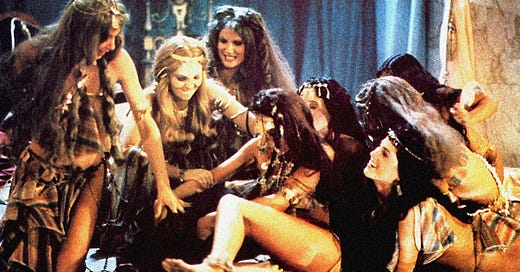



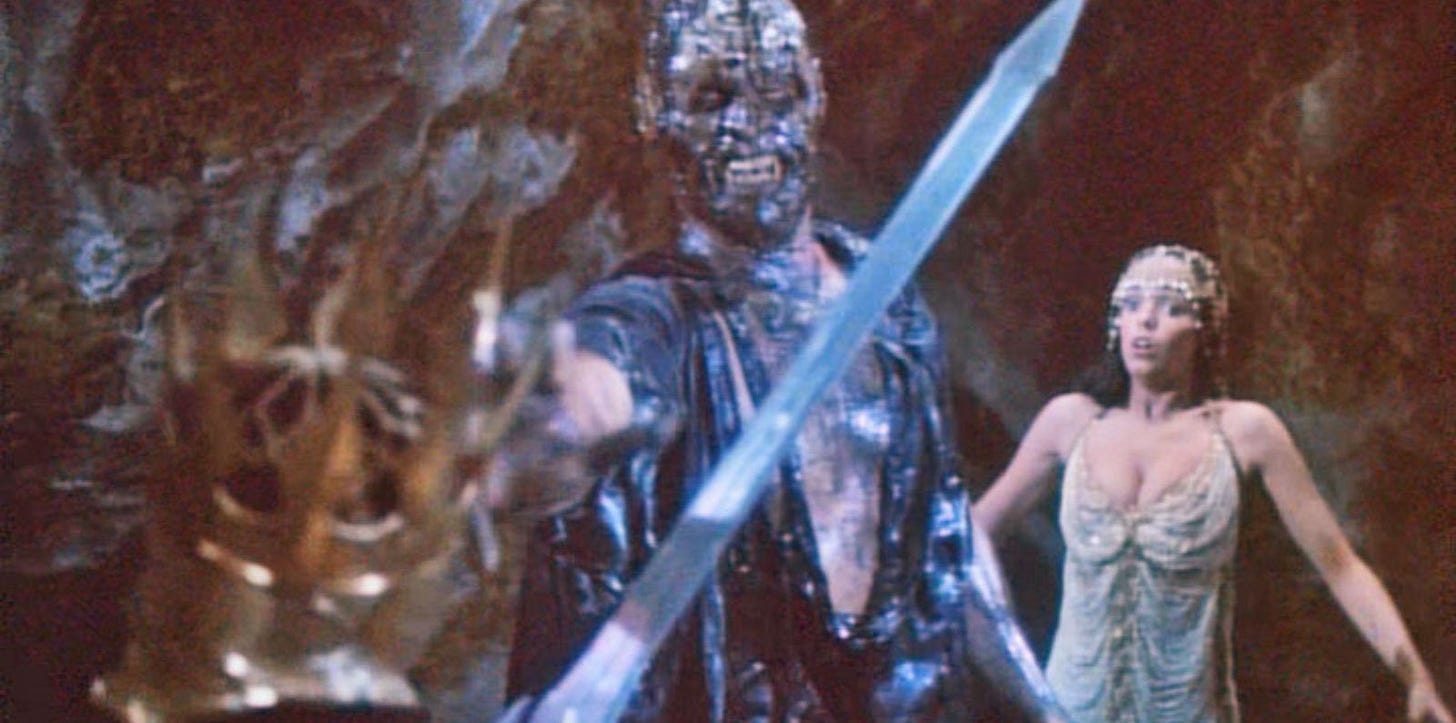
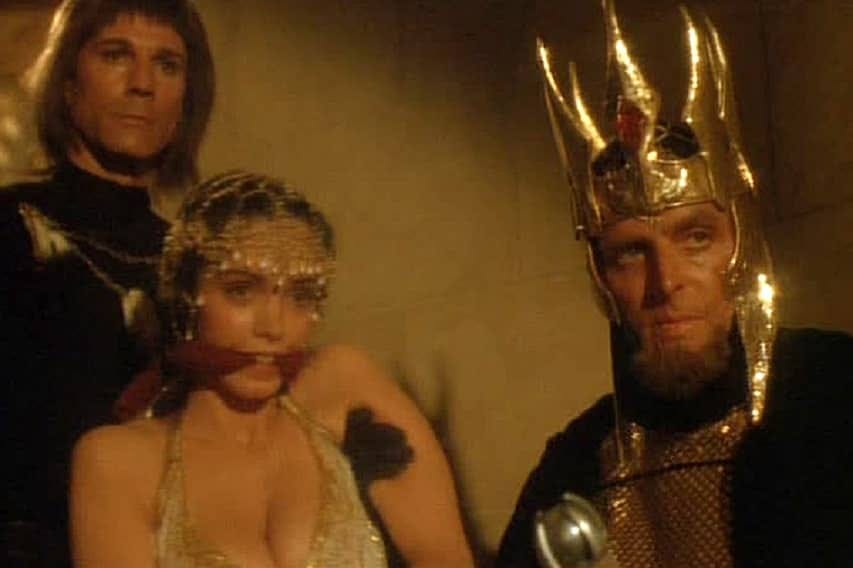
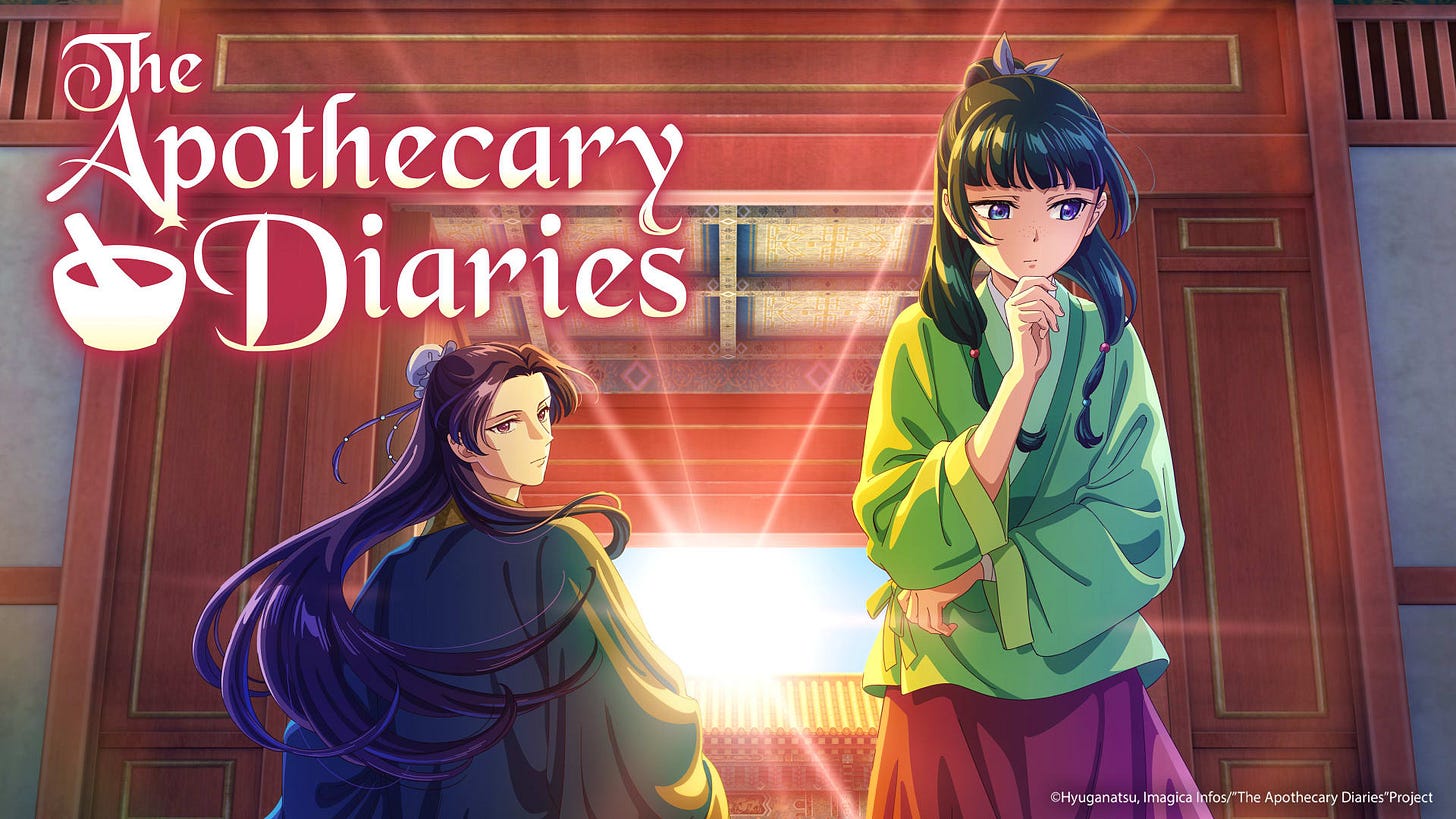
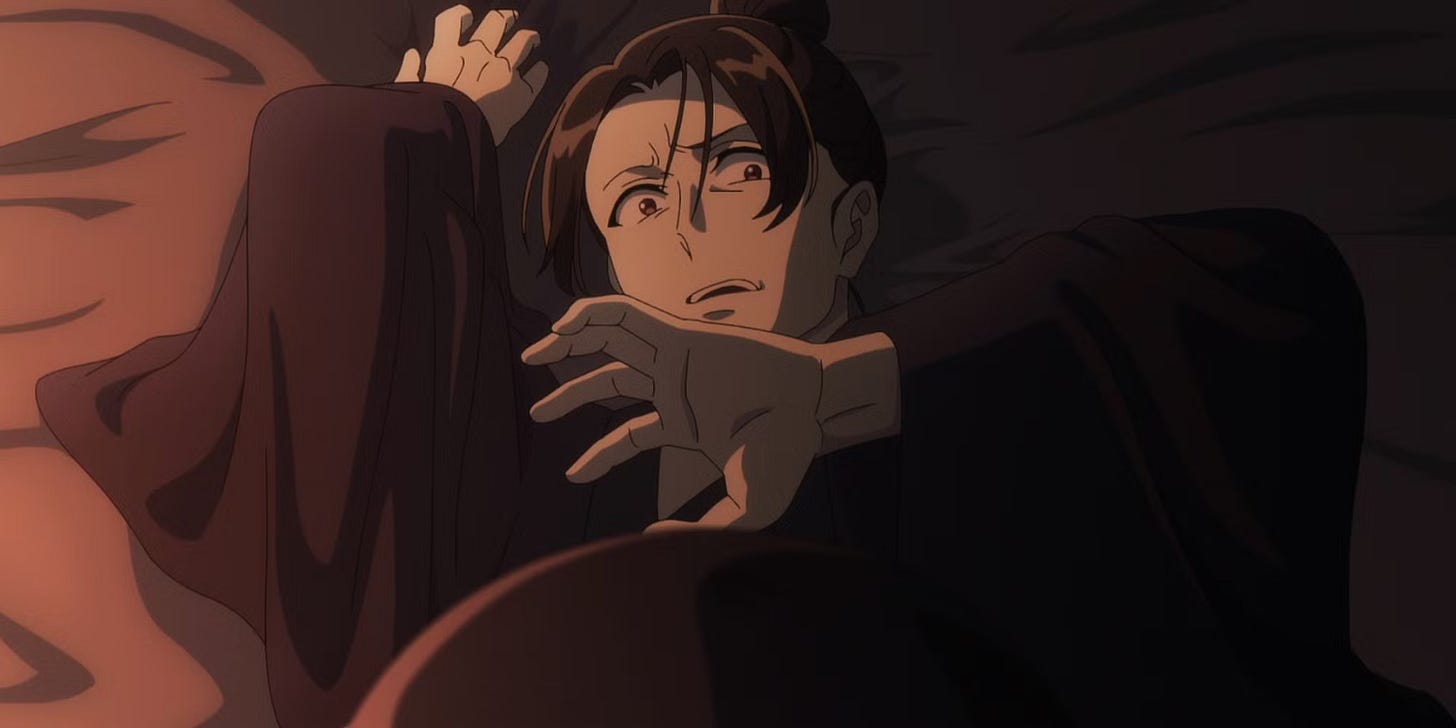
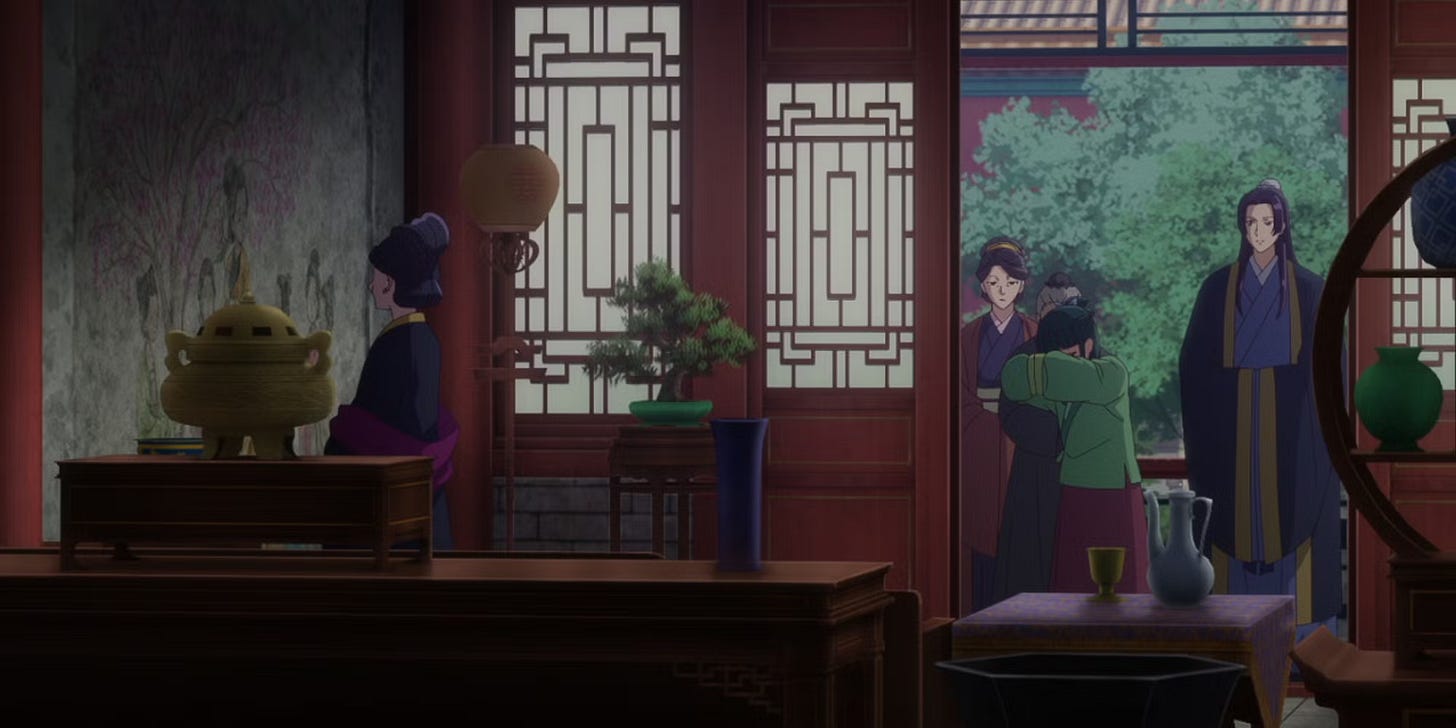
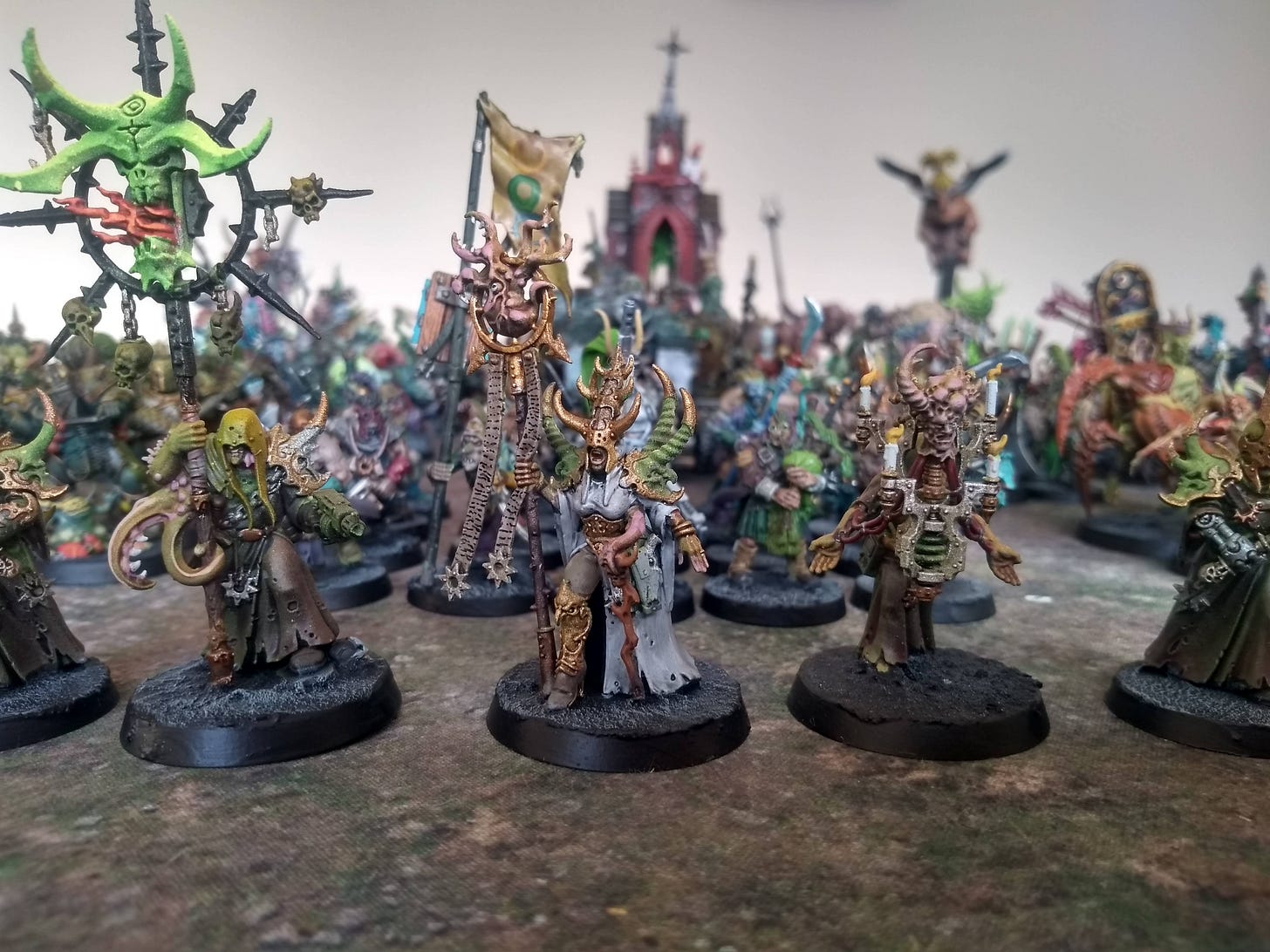
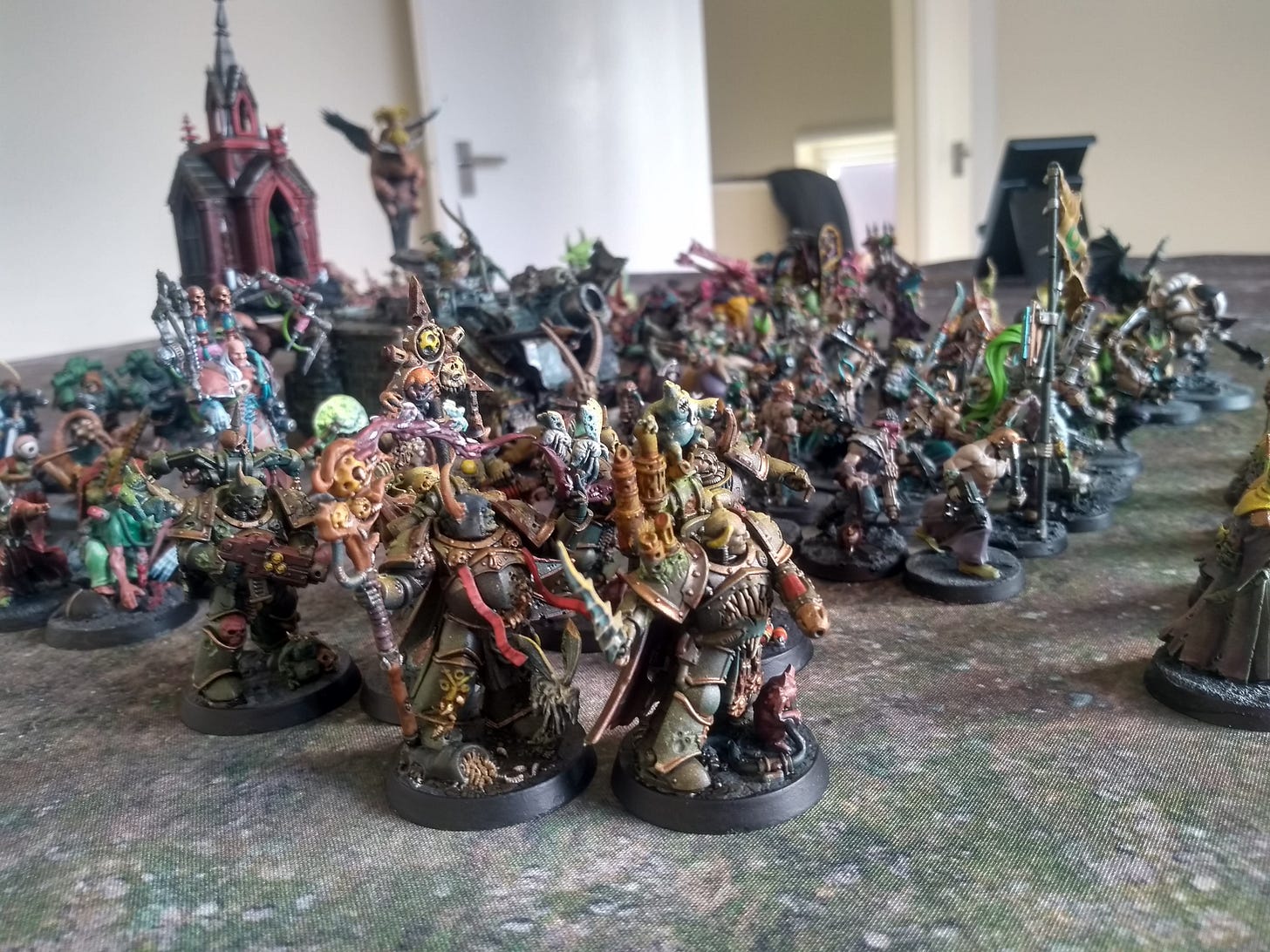
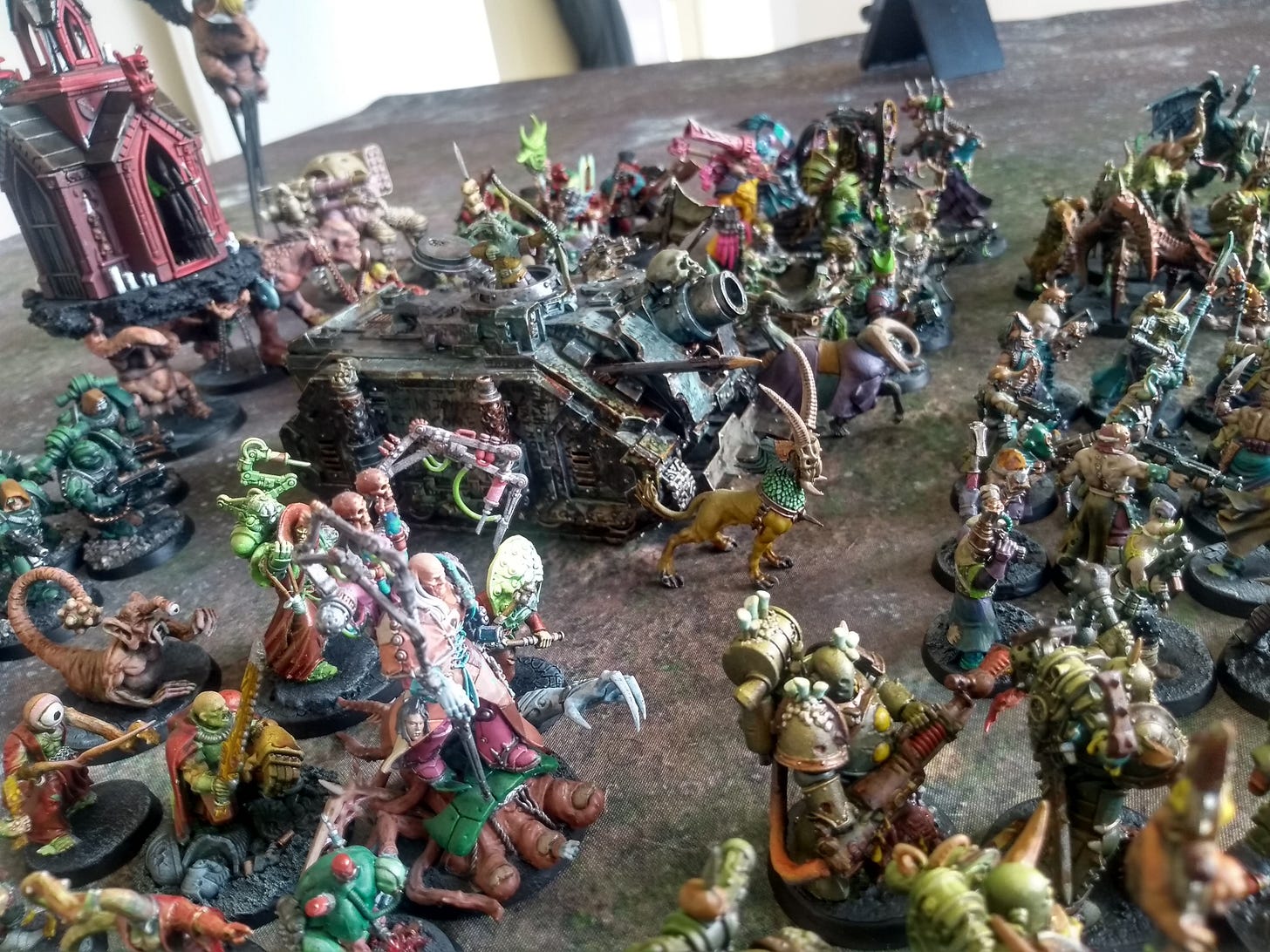
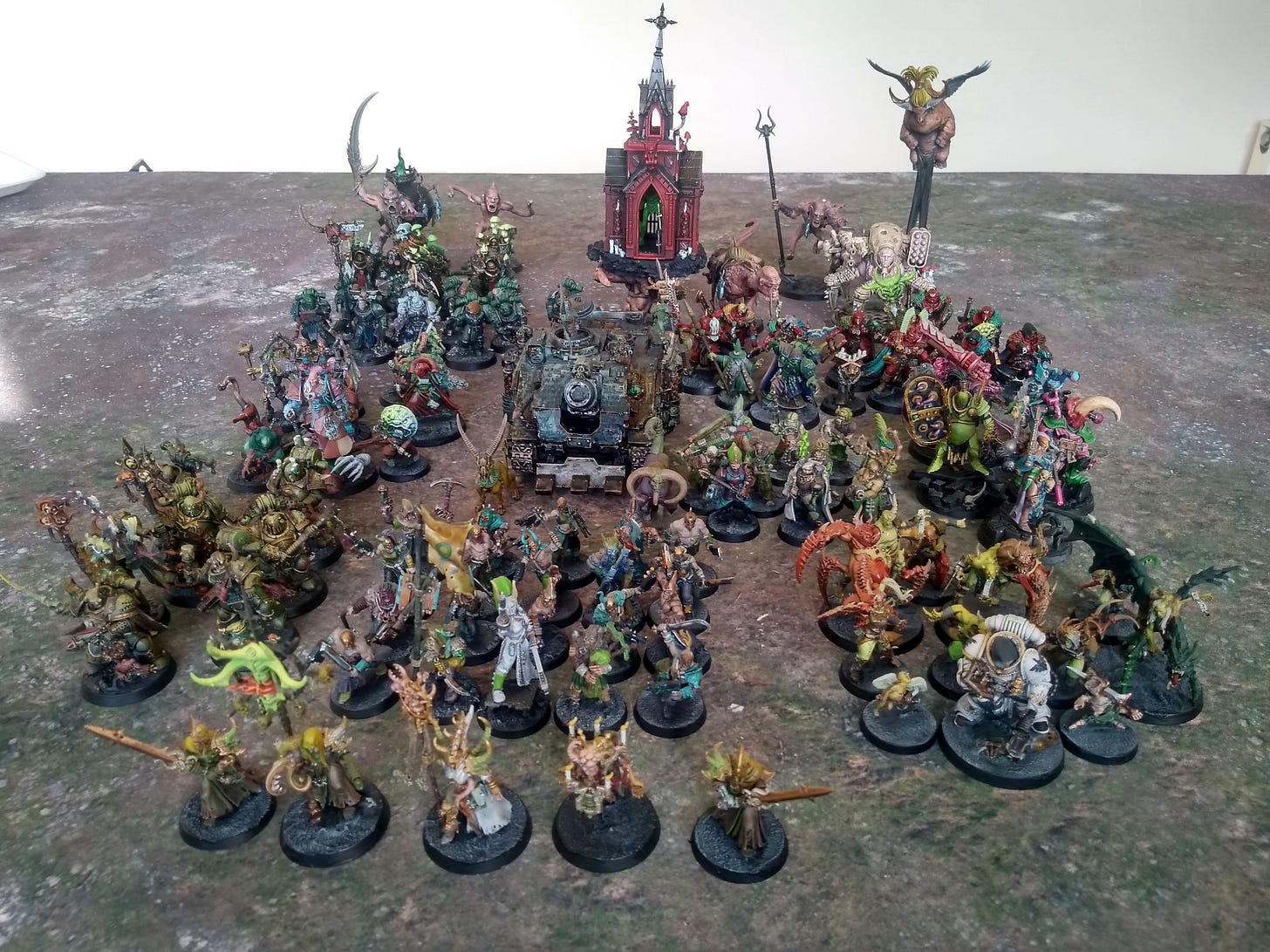
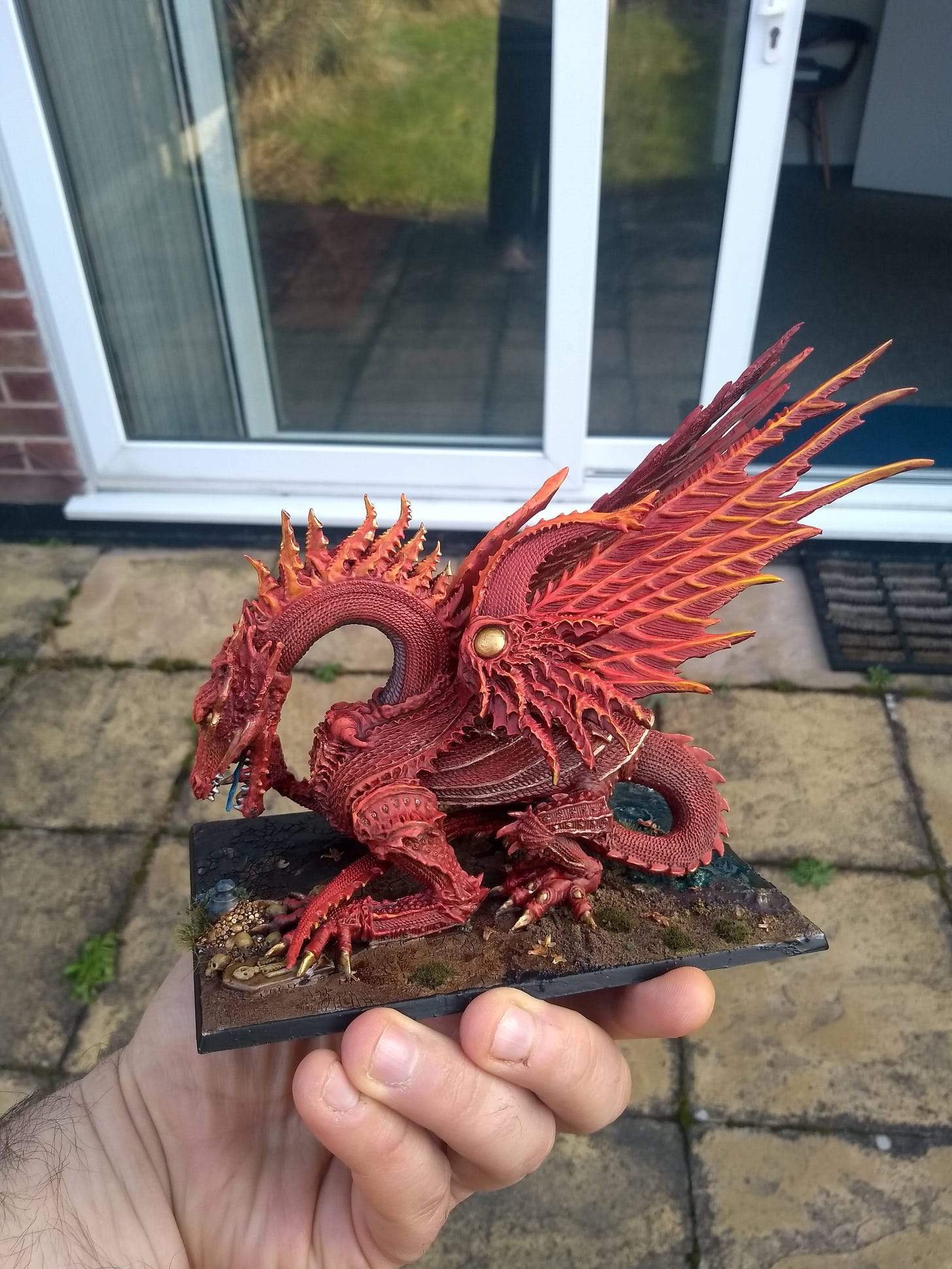

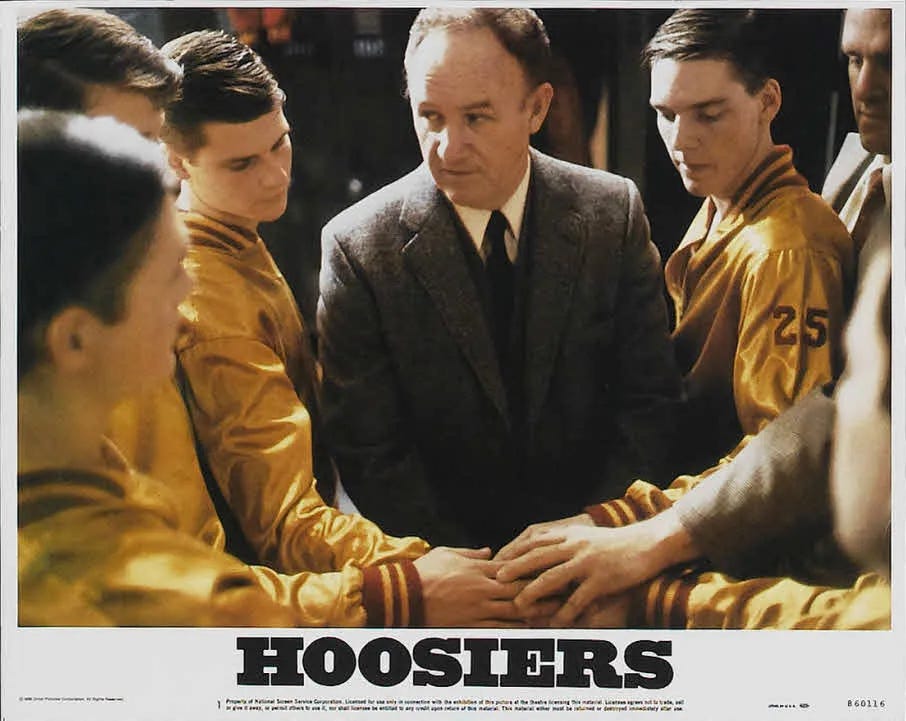
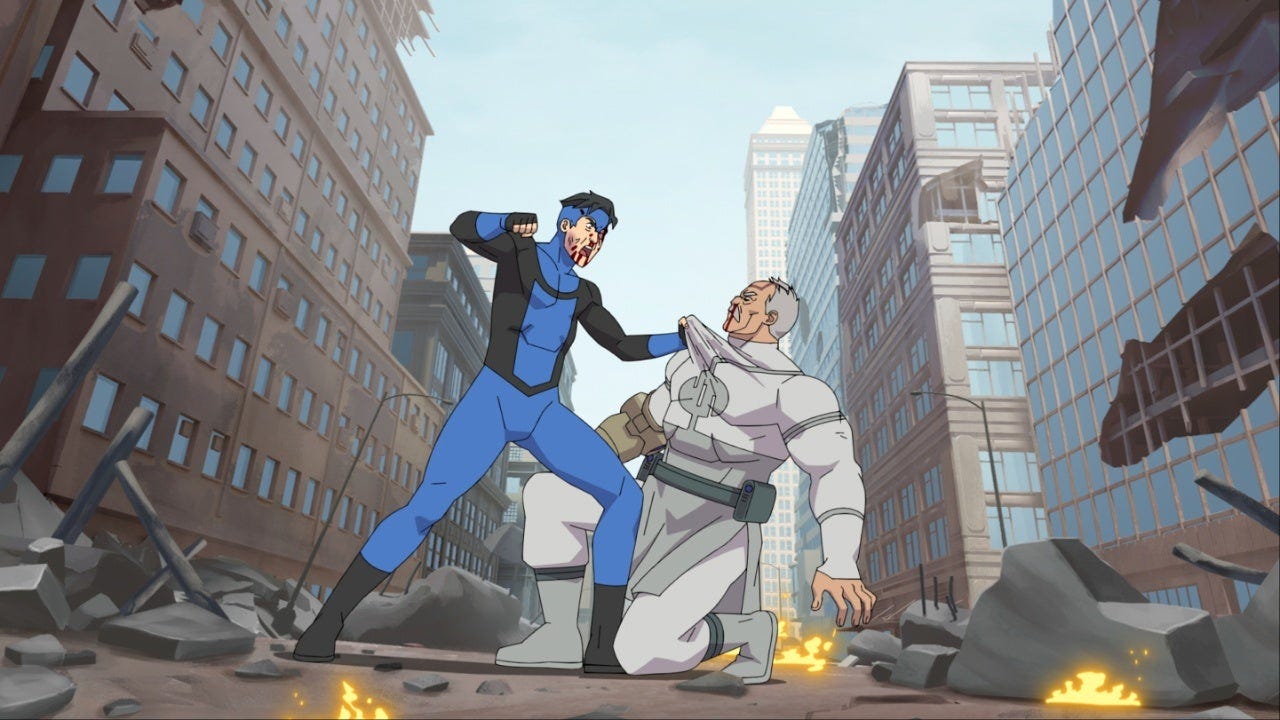
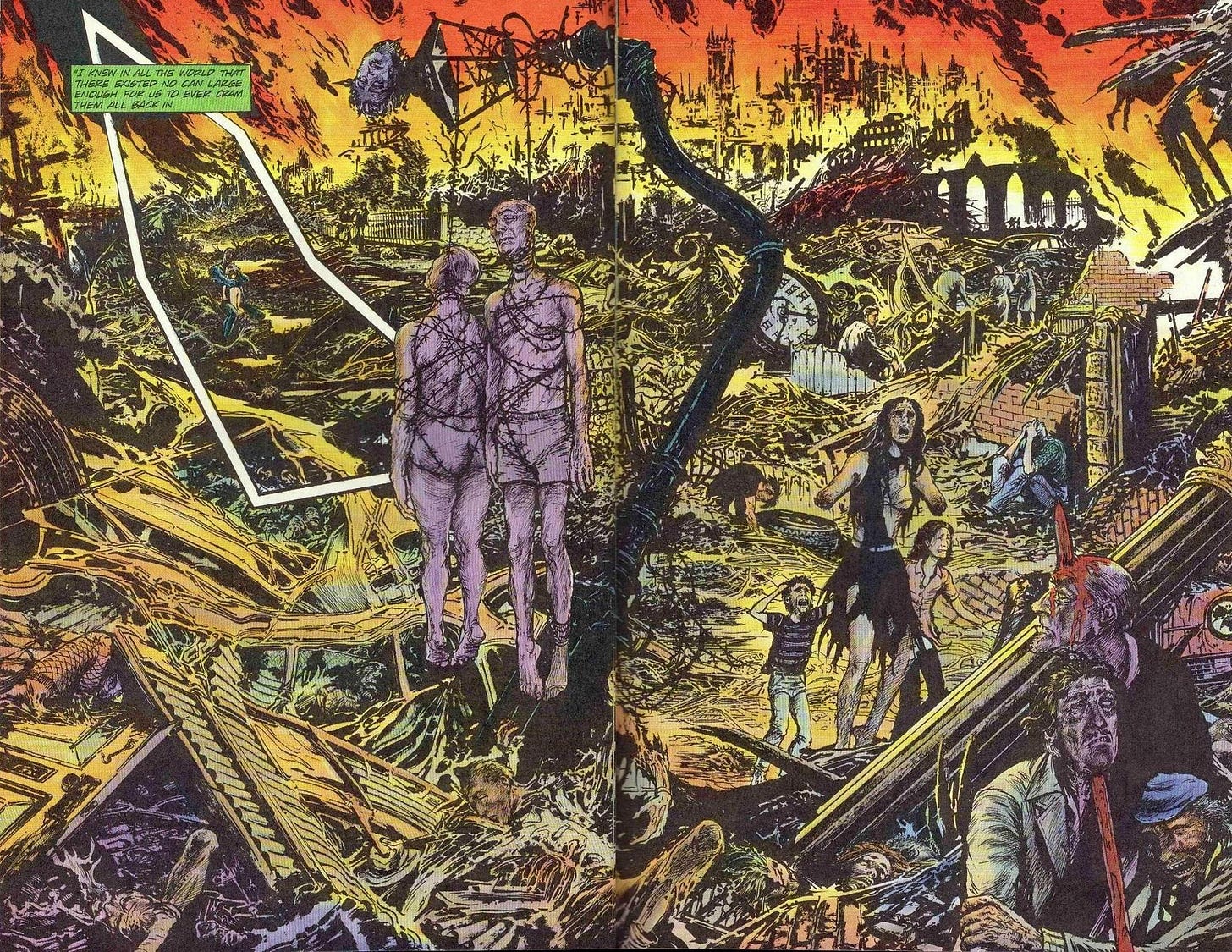
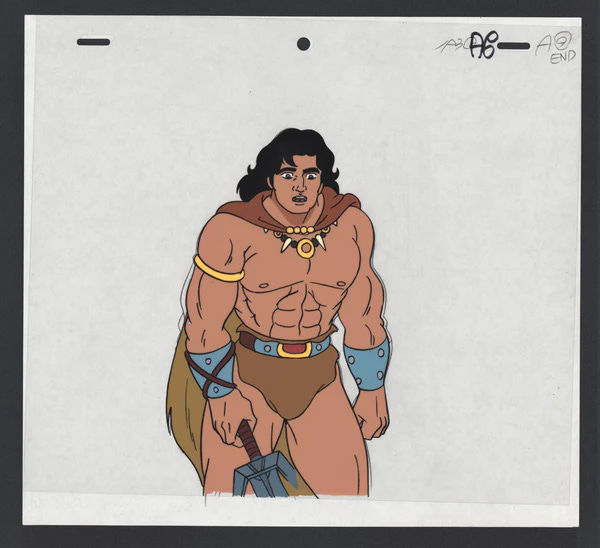
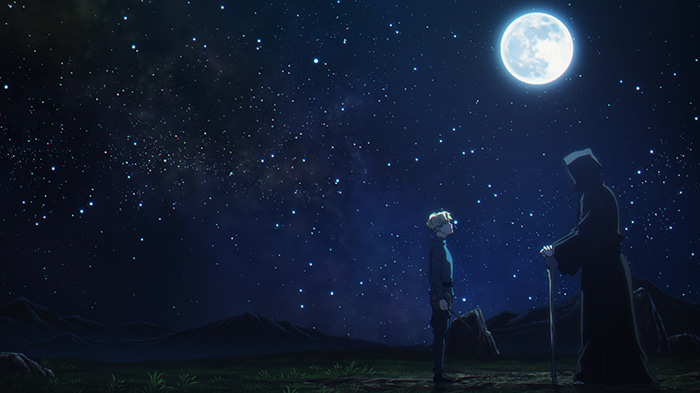
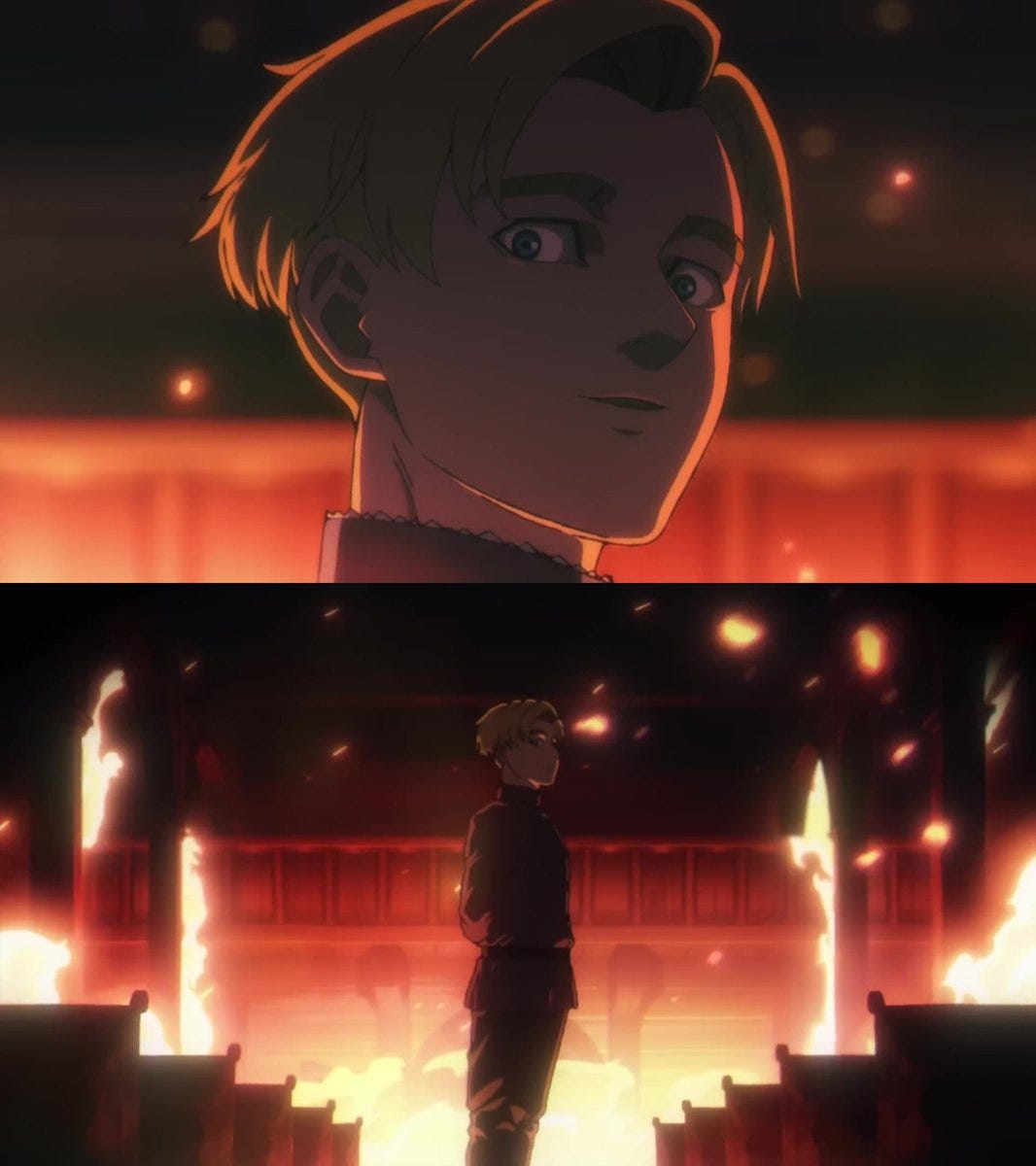
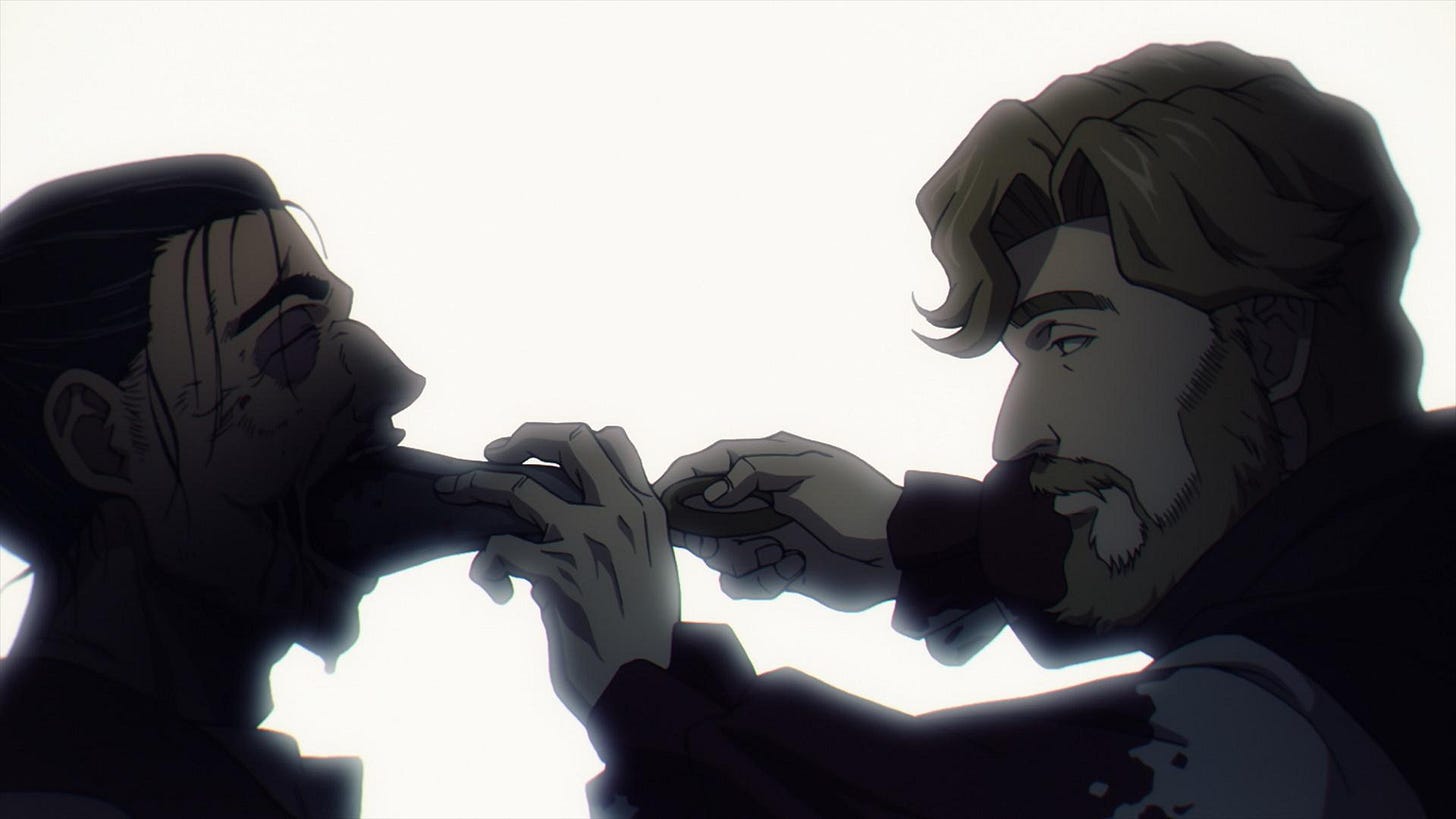
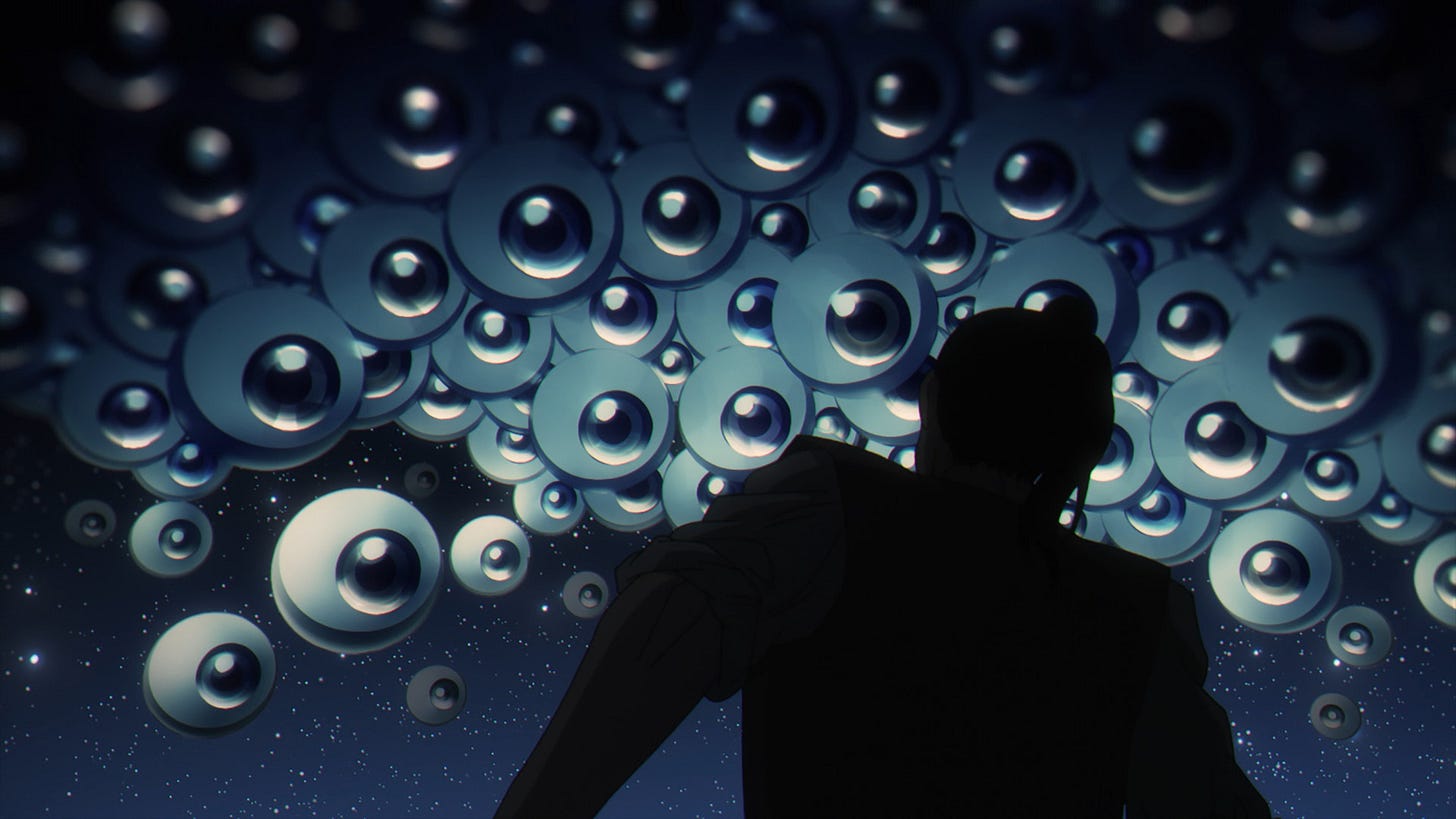
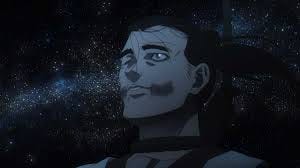
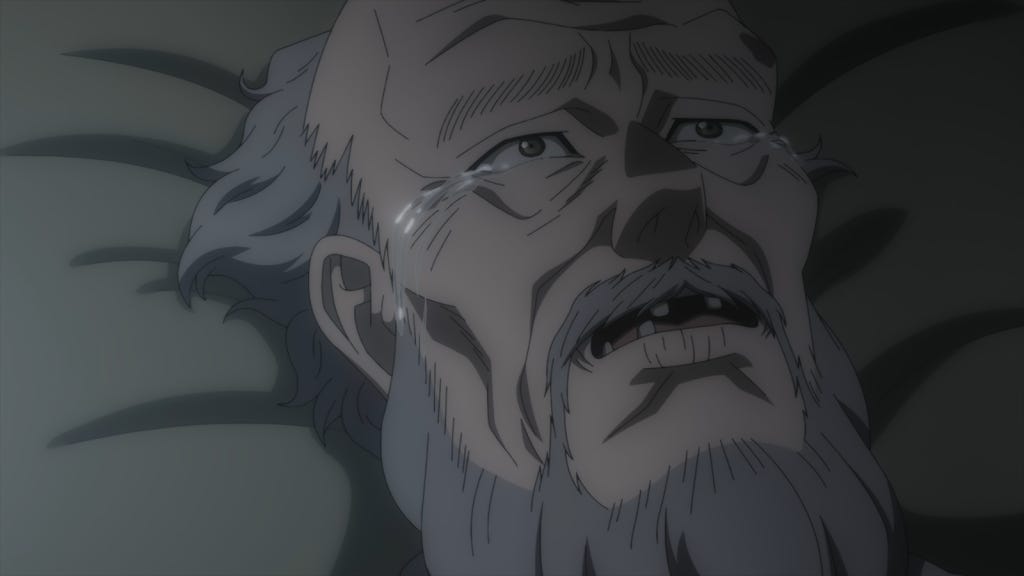
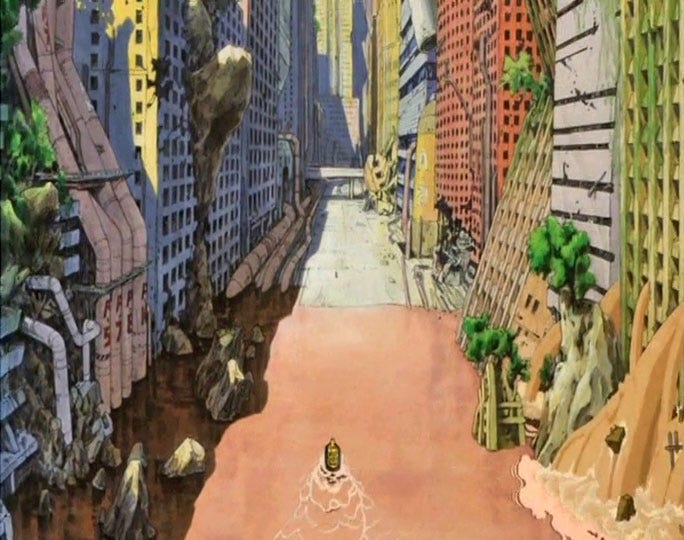
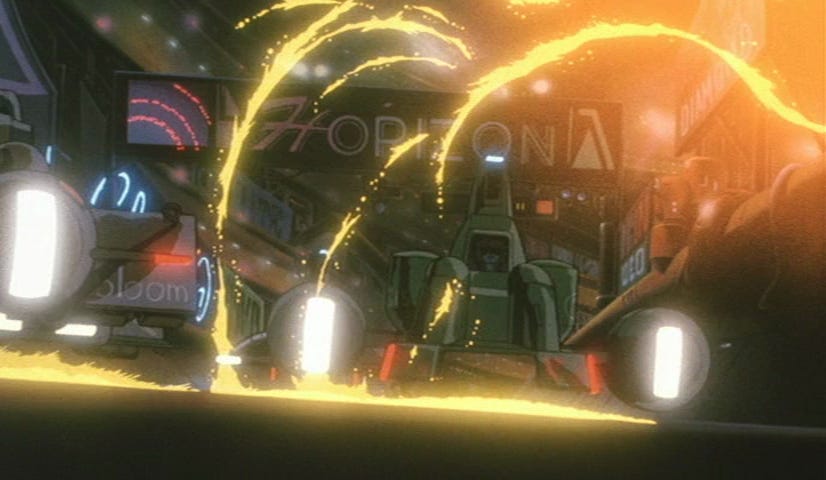
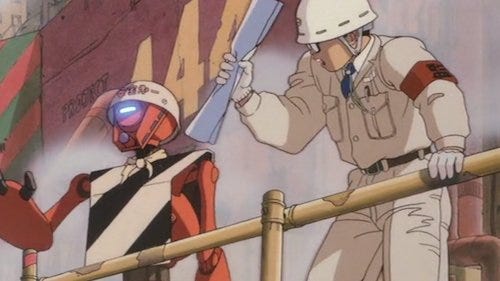
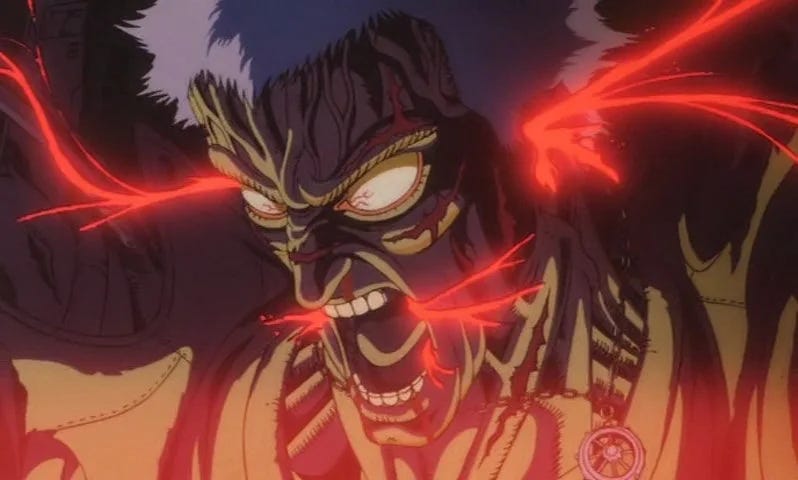

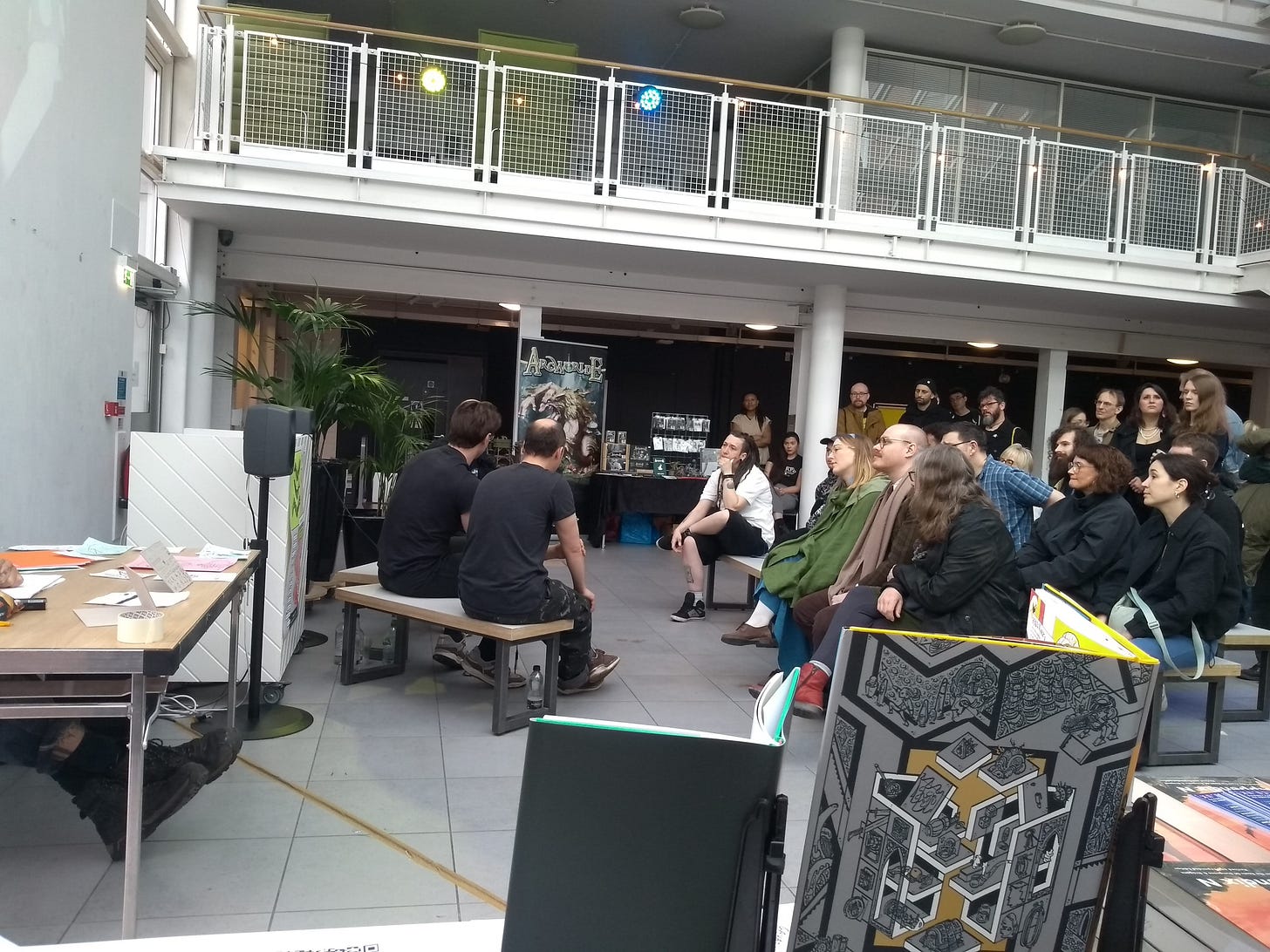
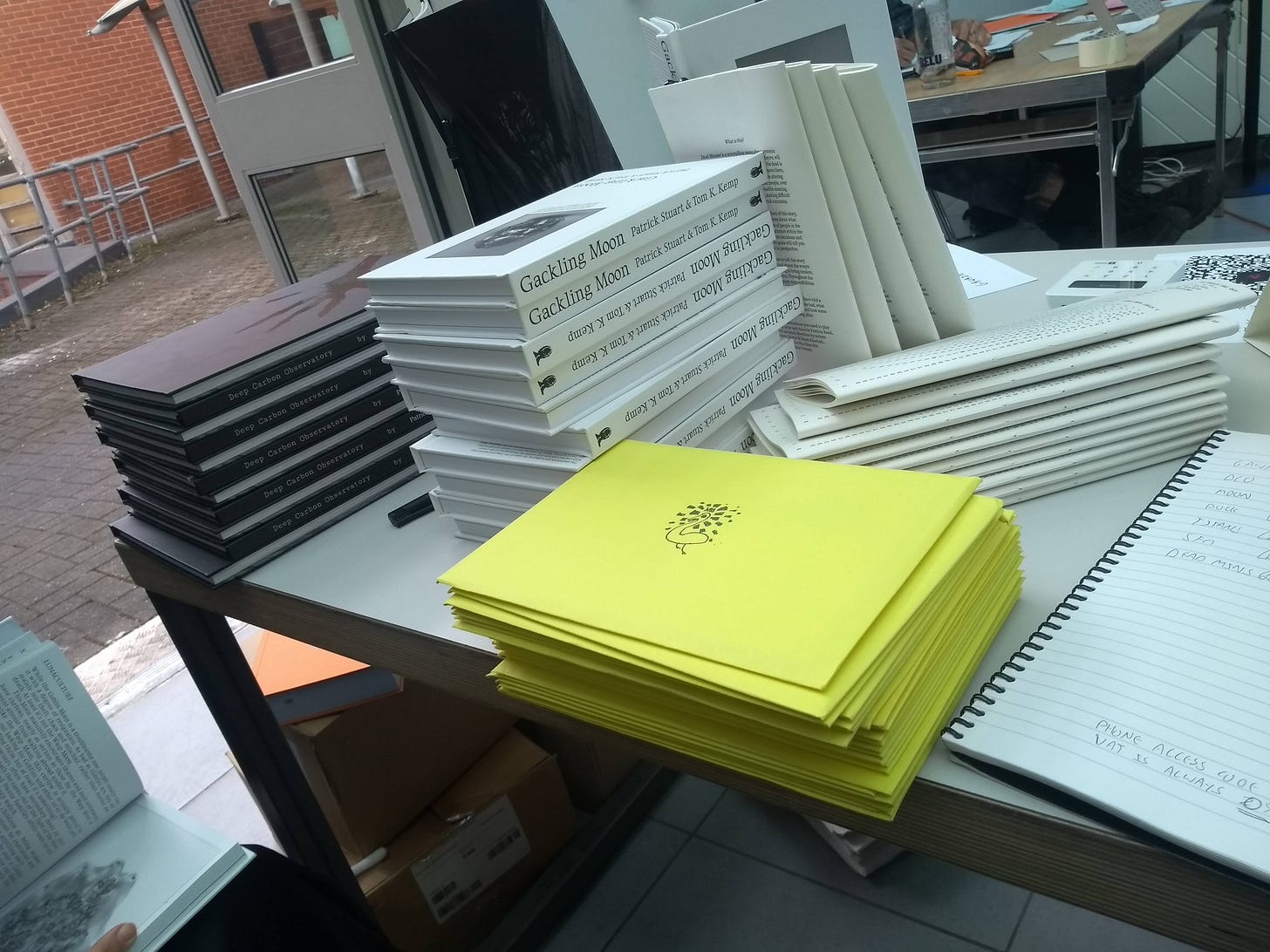
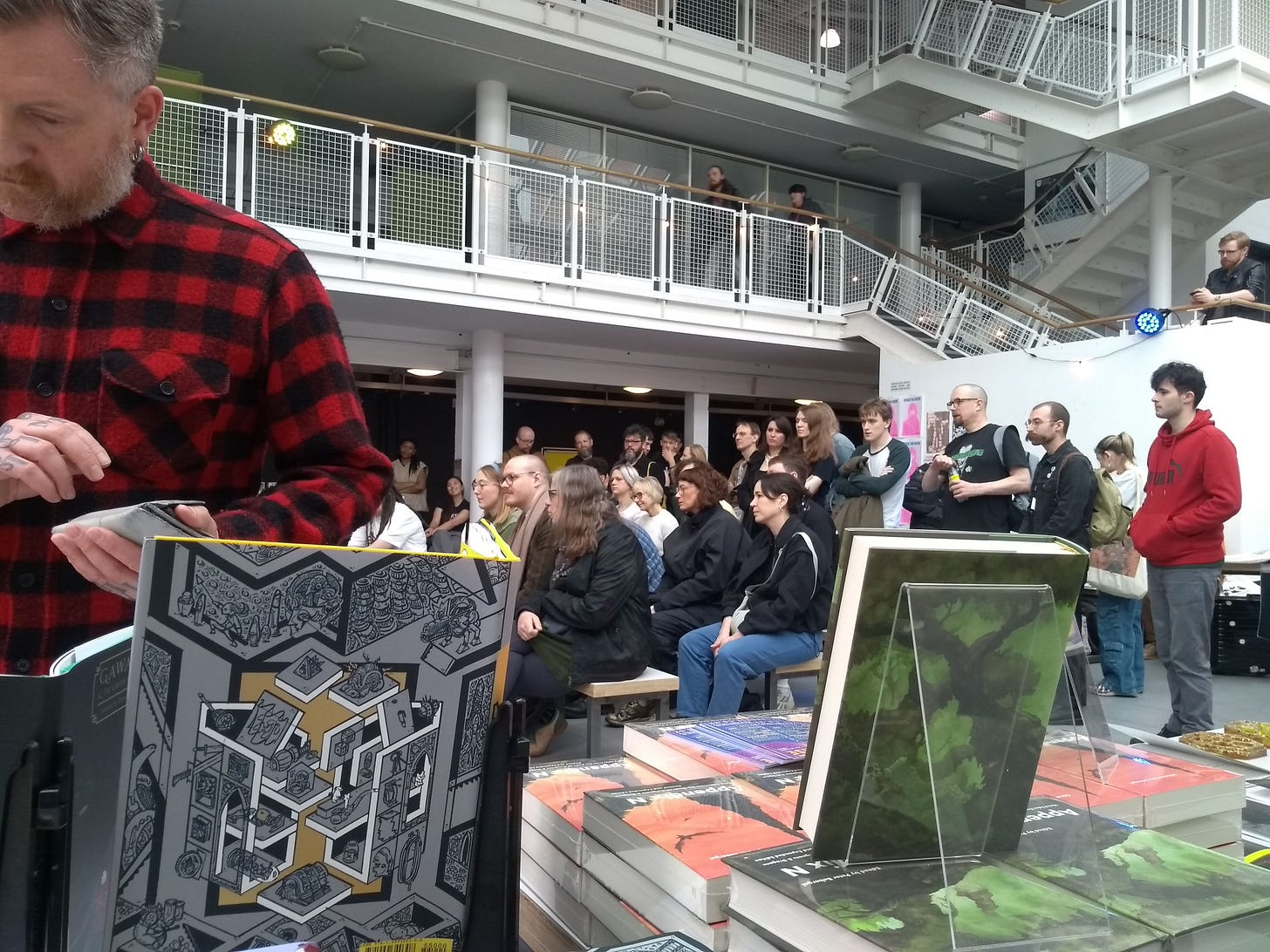
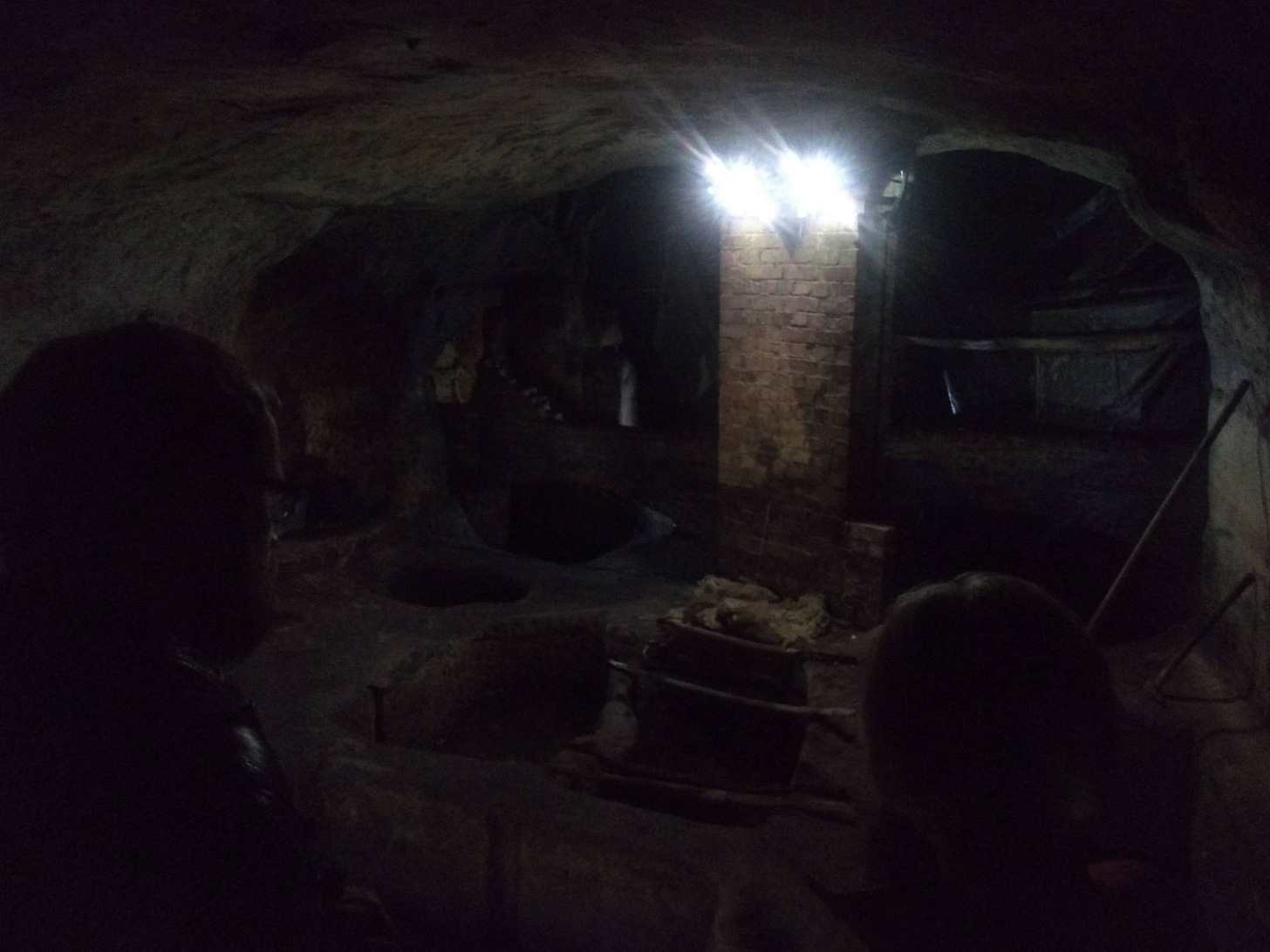
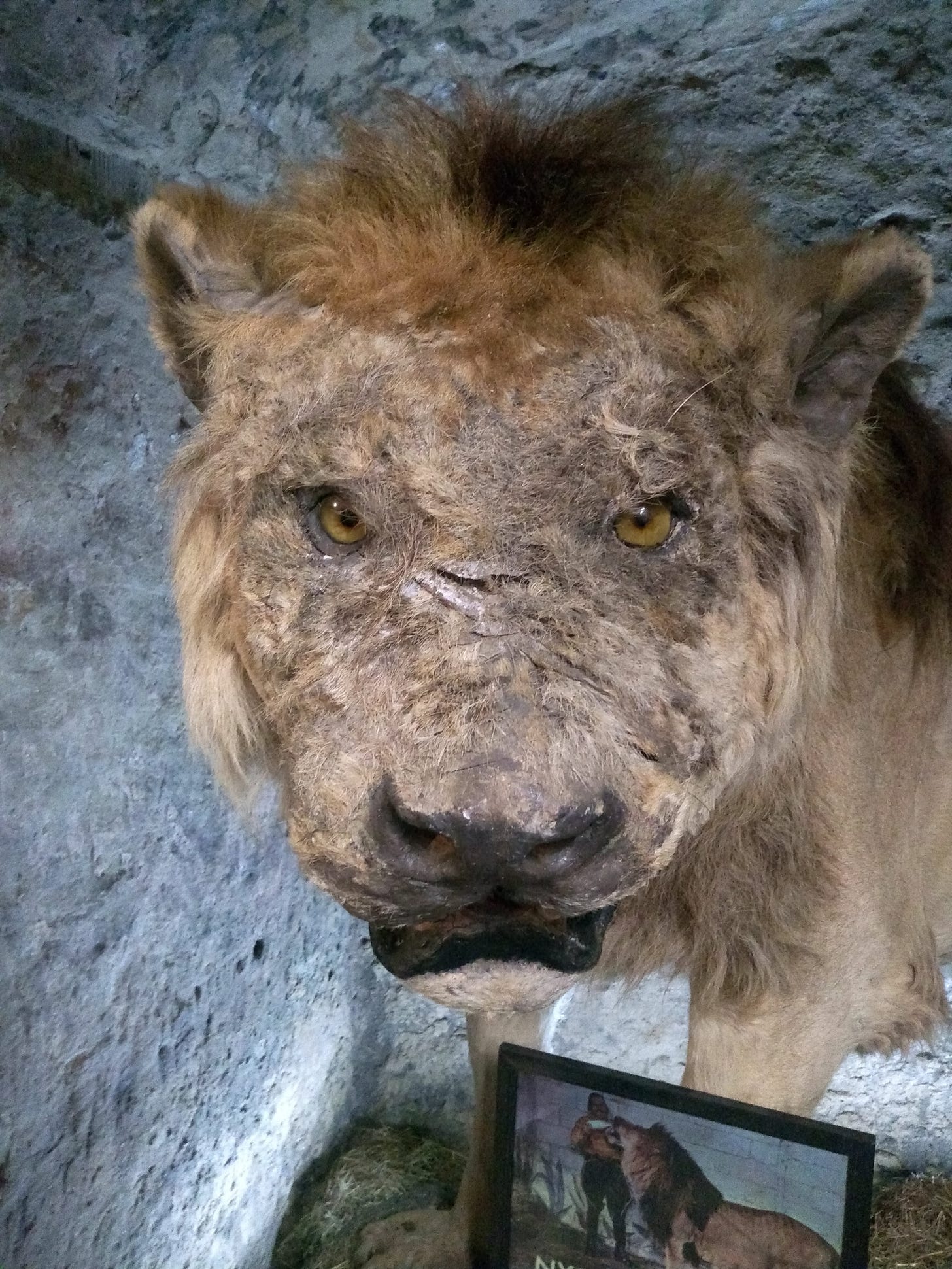
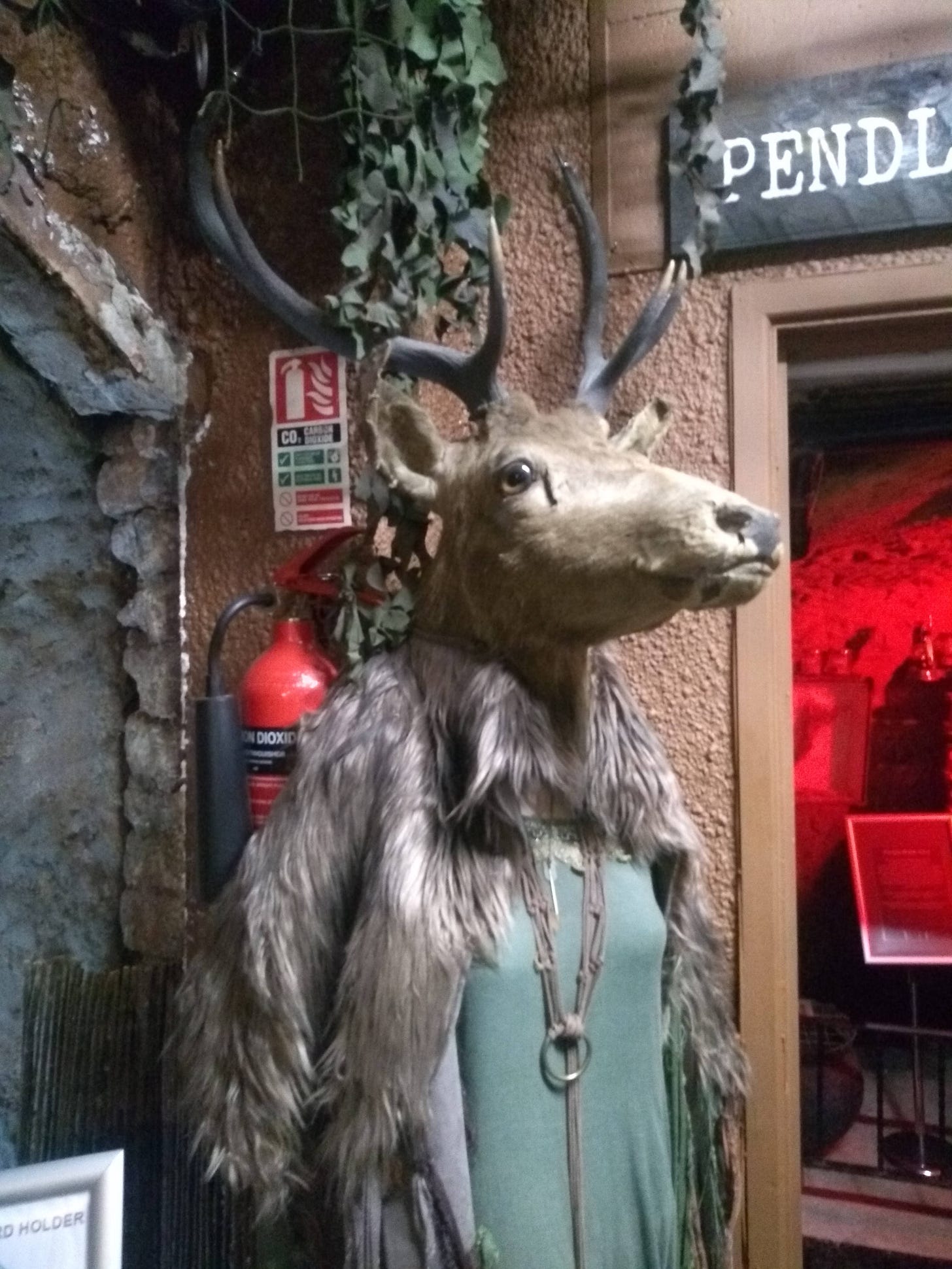
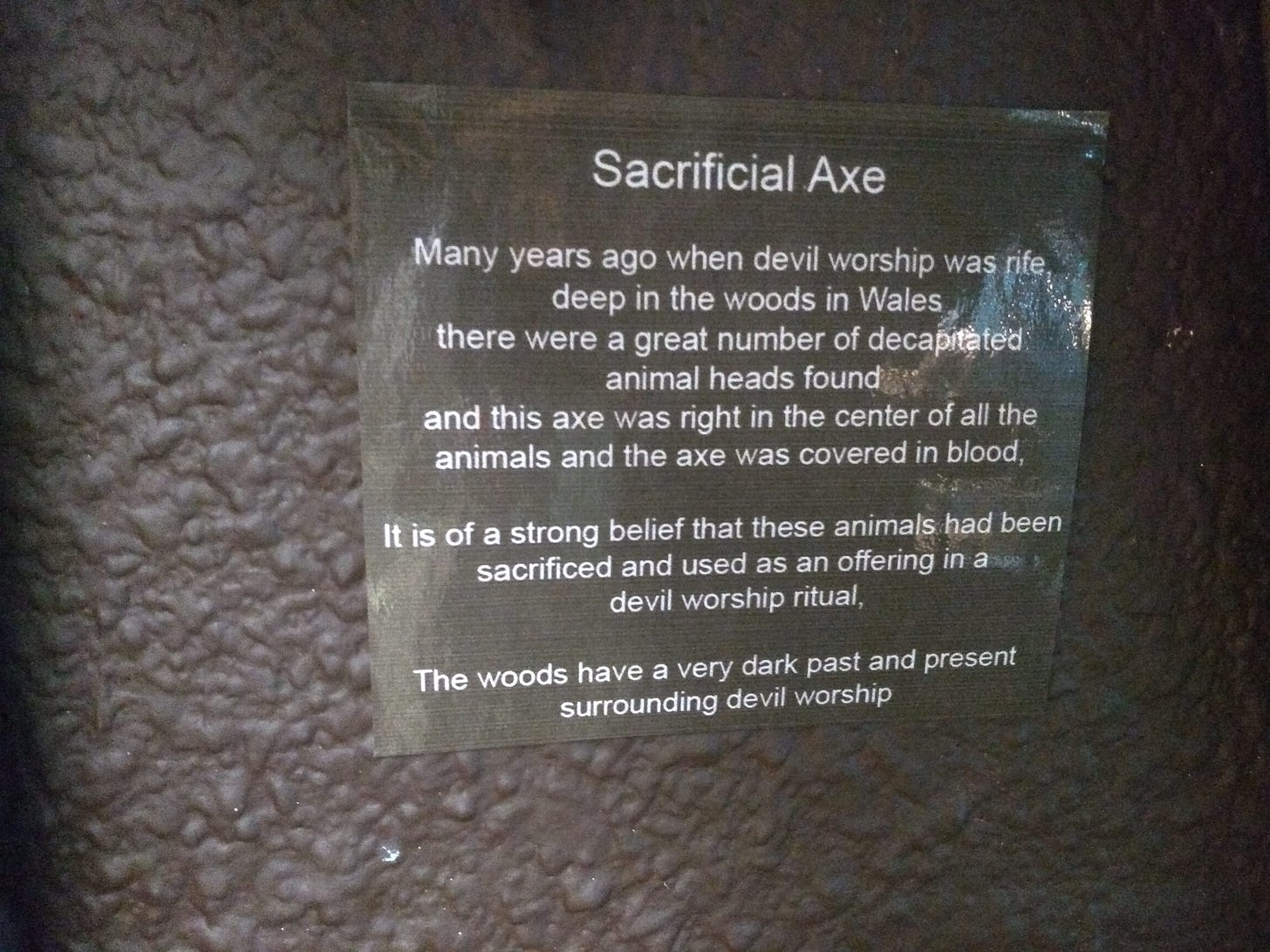

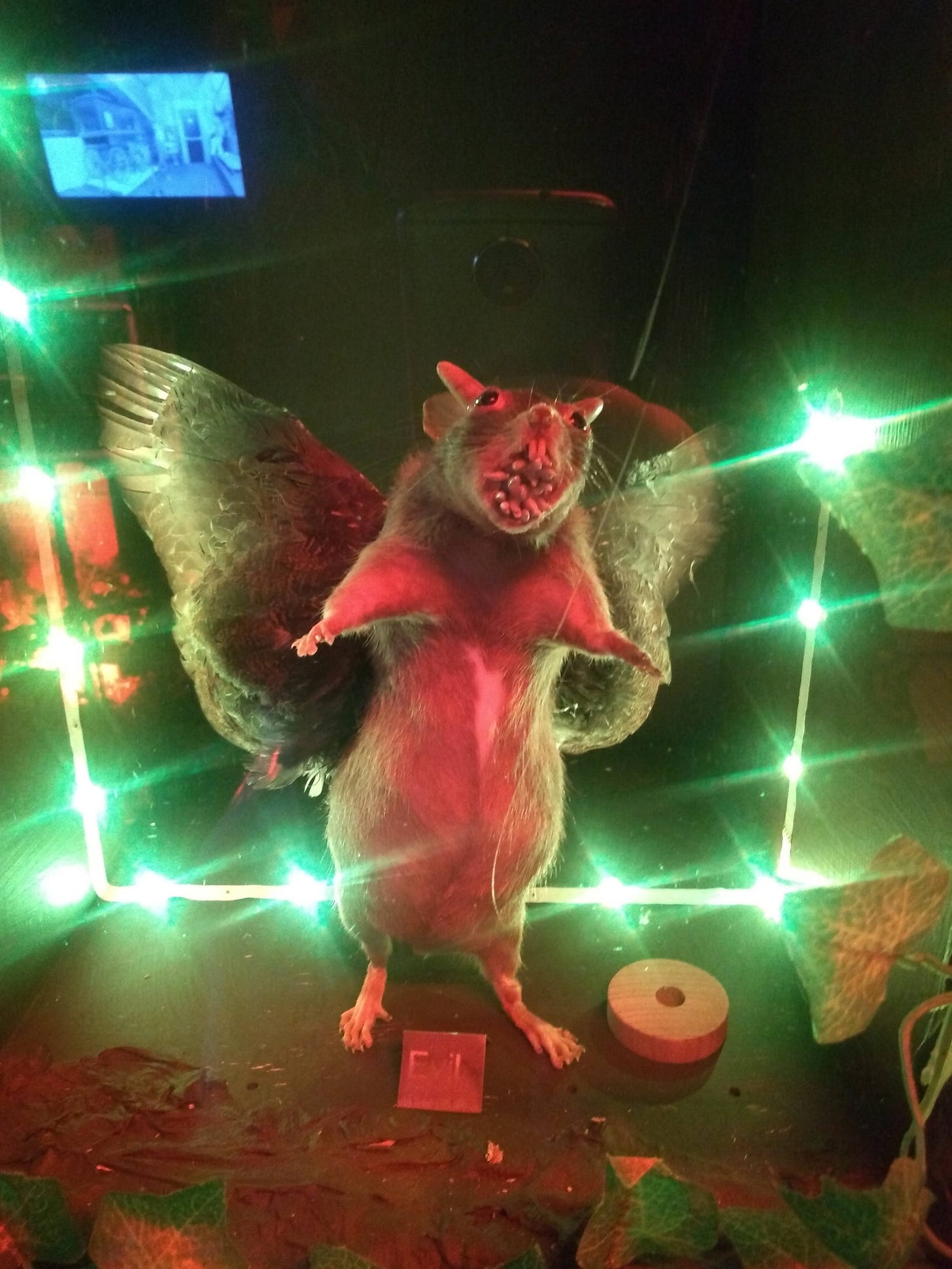
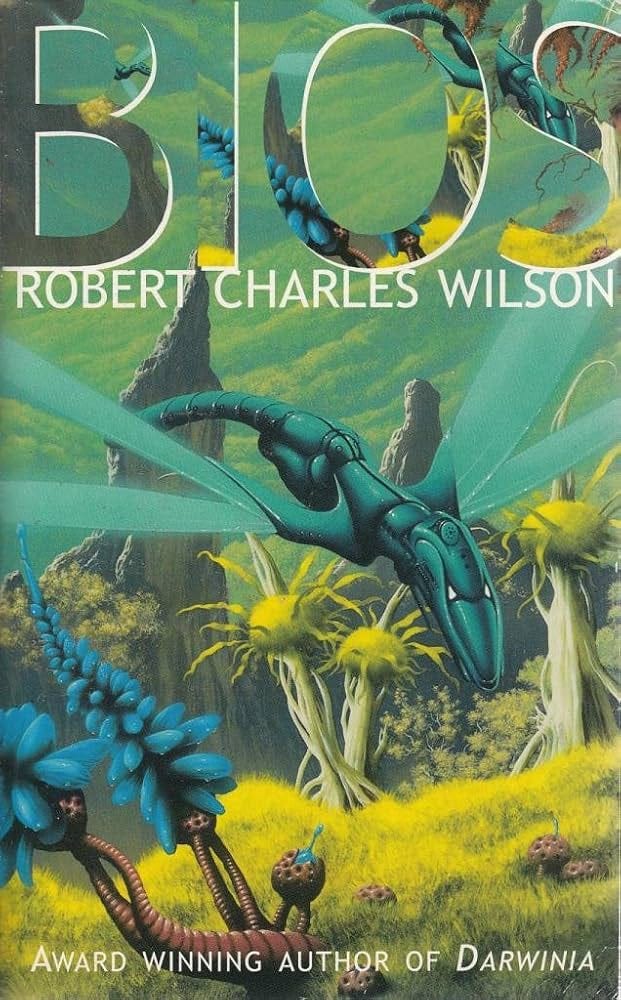
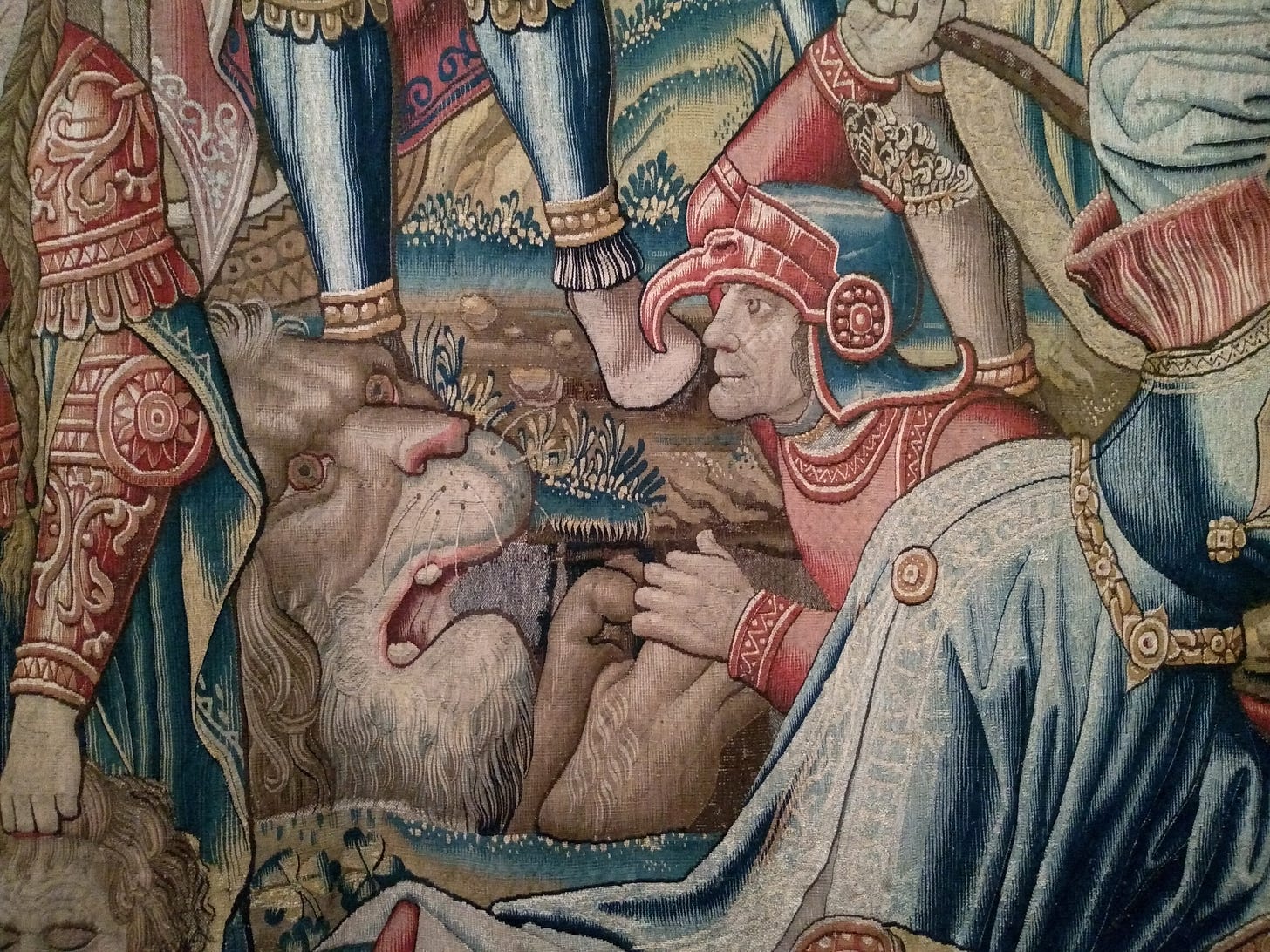

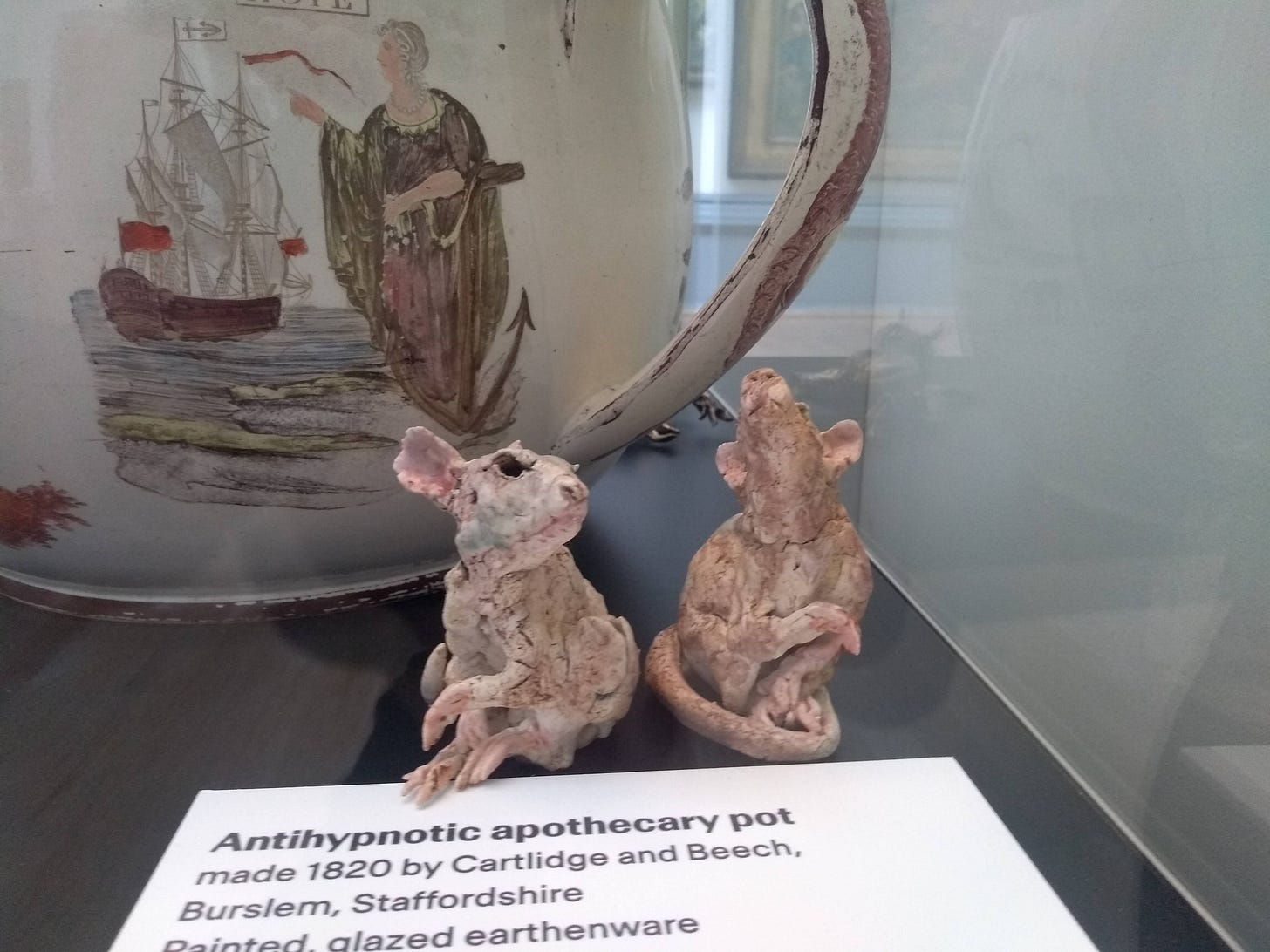

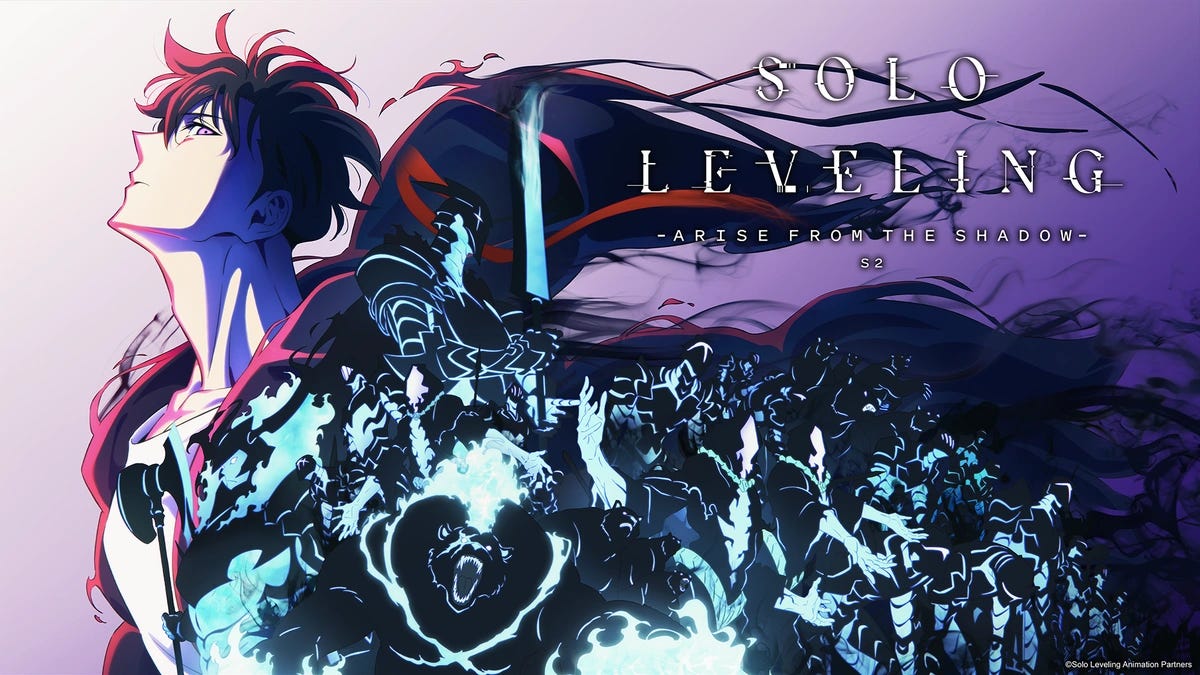

I'm going to be honest, despite what I said before about being good either way, this post was a bit intimidatingly long, and I found as a result that I did not read it as closely as I might have if it were chopped up into more manageable chunks. Maybe that's a personal failing but all the same. Sometimes in these cases I come back and reread certain parts more closely later, after I've mentally processed that the post was longer than what I was prepared for at the time.
That said, a lot of great recommendations as always!
Also, anecdotally, people are def talking about Apothecary Diaries; I haven't seen it yet but I feel like I can't stop hearing about it lol. Offhand I know the Crunchyroll podcast talks about it all the time, but I know I've been hearing about it elsewhere as well.